#2018 CHINESE ADAPTATION
Explore tagged Tumblr posts
Text

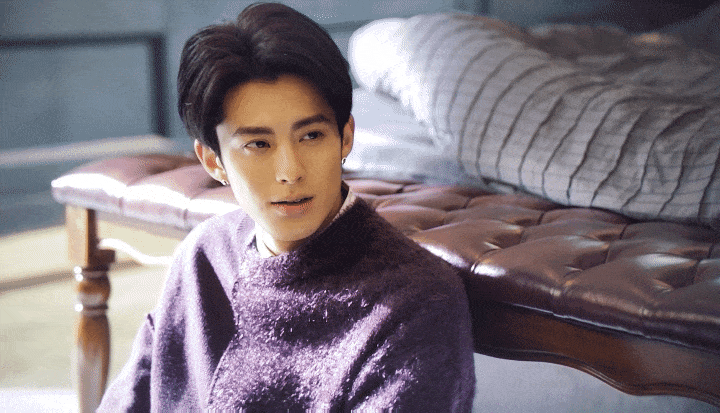



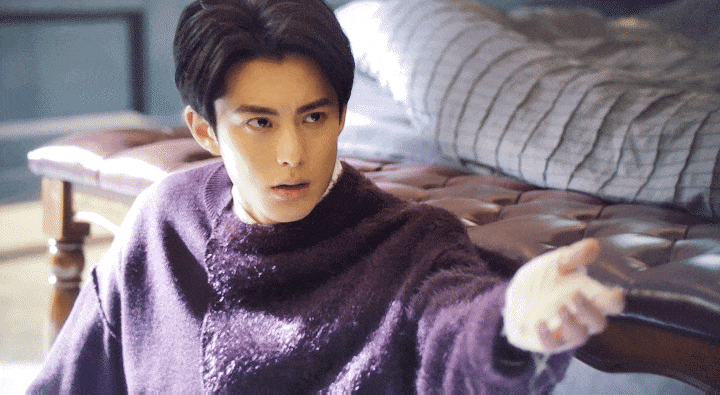


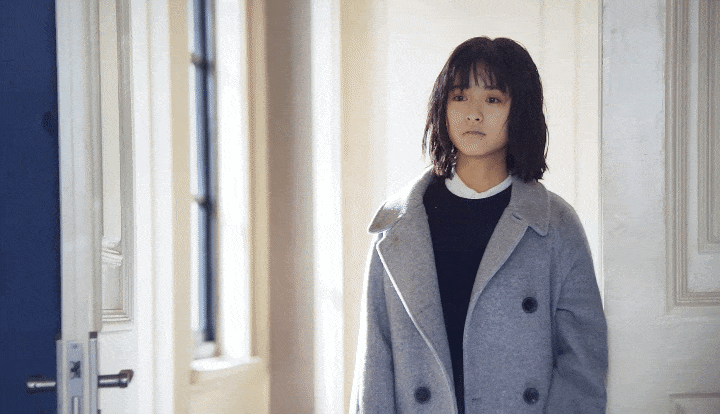
METEOR GARDEN (2018 CHINESE ADAPTATION)
After days of rain with no food and water for Si or Shancai, Hauze Lei and the F4 guys access Si's computer and his plan to move the Daoming Group forward.
Huaze Lei presented it to Daoming Feng and Daoming Zhaung and Mrs. Daoming finally gave in.
Shancai (SHEN YUE) weak and tired went to see her man. Her feet and legs heavy to walk on. She makes it to his room and then collapses with Daoming Si's (DYLAN WANG) hand to break her long fall.
They out wait the fierce and stubborn Daoming Feng...
Then the ending got a little bit more shall we say odd...
@pose4photoml
#METEOR GARDEN#2018 CHINESE ADAPTATION#HANA YORI DANGO/BOYS OVER FLOWERS UNIVERSE#EPISODE 48#DYLAN WANG & SHEN YUE#THE END IS NEAR#My GIFS#MYGIFSET#MY-GIF-EDIT#BL-BAM-BEYOND FAMILY OF BLOGS#THE HUNGER STRIKES ENDS
26 notes
·
View notes
Text

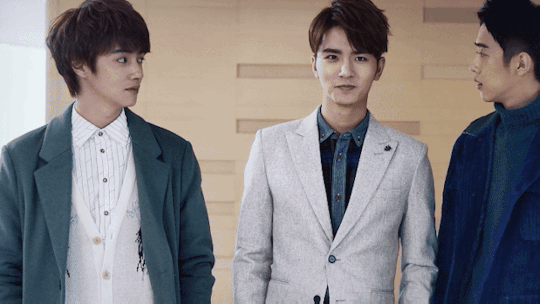
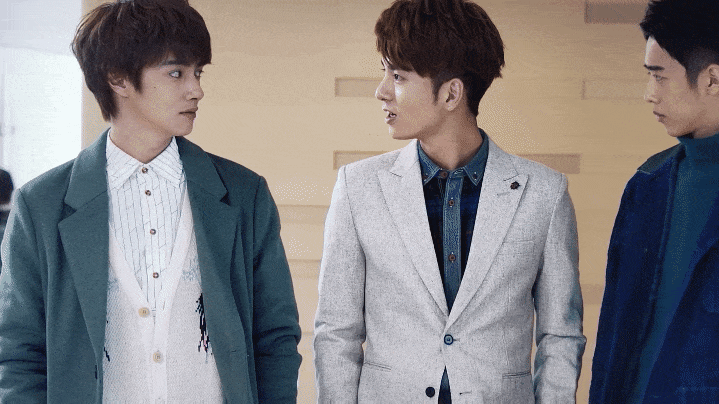


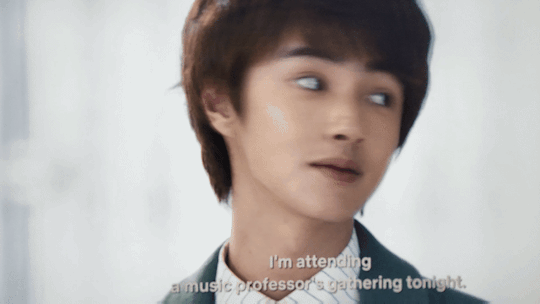
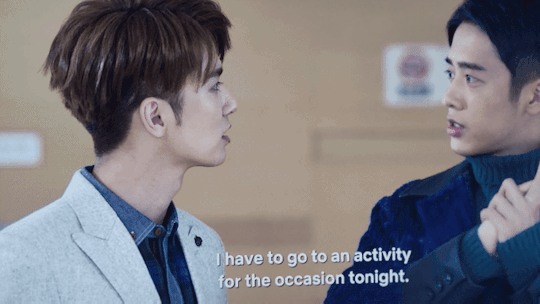
MADE IN CHINA
LEON LEONG
DARREN CHEN
CEASAR WU
#MADE IN CHINA#MADE IN TAIWAN#CHINA SERIES REMAKE#F4#F3#LEI#XIMEN#MEIZUO#METEOR GARDEN#From My Secondary Blog (NON BL WATCHLIST)#My GIFS#MYGIFSET#MY-GIF-EDIT#BL-BAM-BEYOND FAMILY OF BLOGS#2018 CHINESE ADAPTATION#HANA YORI DANGO/BOYS OVER FLOWERS UNIVERSE
2 notes
·
View notes
Text










Guardian | S01E40
Chinese Drama - 2018, 40 episodes
Episodes | Viki | YouTube | iQIYI | WeTV | Tencent | Youku | Catalogue
Native Title: #镇魂
Genres: #Fantasy
Tags: #Censored Adaptation of Same-sex Original Work #Bromance
Cast: #Bai Yu #Zhu Yi Long #Li Yan #Jiang Ming Yang #Xin Peng
#Drama: Guardian#Censored Adaptation of Same-sex Original Work#Censored Romance#Fantasy#镇魂#Bai Yu#Zhu Yi Long#Li Yan#Jiang Ming Yang#Xin Peng#Post: Rework#Adapted from a Novel#CDrama#Bromance#Chinese Drama - 2018#Drama: 2018#Final Episode
70 notes
·
View notes
Text
I remember not planning on watching this version when the first teaser dropped because I thought it'd be too dark for a HYD adaptation, but I was proven wrong. It is the best take in the story even if the Taiwanese version is iconic and my bias for nostalgia reasons (funny that I'm on the same age as those who the Chinese version is for, and watched it first bc I was a fan of Shen Yue due to ALSB, but I only started loving HYD bc of the Taiwanese version).
The writing and casting is just great and even the way they made their F4 sing reminds me of the og Taiwanese F4 boyband which the Chinese version tried to be.
The Korean version however is just the worst with reducing Domyouji as the 2nd lead in his own story and they had the guts to make Ji Hoo the soulmate lmaoo I like Kim Hyun Joong, but how dare they?? Anyway, I have yet to watch the Japanese version, but Thyme's character and redemption is ngl the best written.
In the end, although the best version yet is already decided for me, props for every version in having great F4s and soundtracks and being an icon in their respective eras.
F4 Thailand is everything Hanadan adaptations should be!
Take that, China and Korea! Their Makino is awesome and their Domyouji can compete in a psycho-off with Matsujun and Jerry Yan. MY HEART IS FULL!!!!
I love her but her hair is giving me OCD and I want to sweep those two strands off her face something fierce!
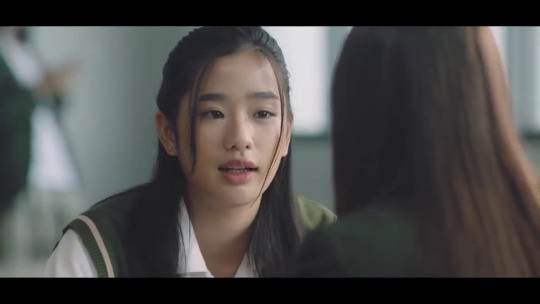
I love how they updated it for the digital age. When the manga came out in the early 90s. CCTV was not a thing.
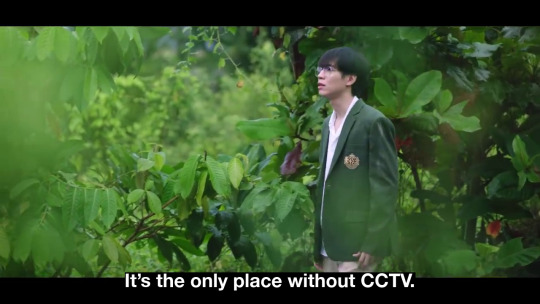
Also, the bullying in this is FUCKED UP INTENSE!!!! Probably the only version I’ve seen that can compete with the Taiwanese one.

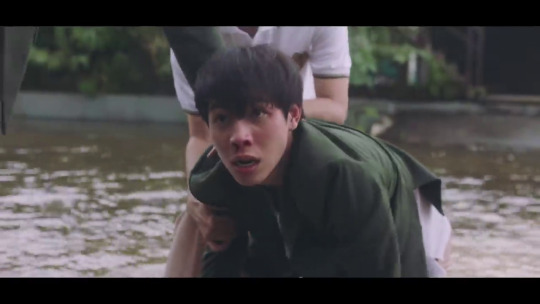
I love the way they introduce the F4 here. It’s not walking through the hallways adored - they are still adored and girls are still screaming - as they walk to beat the hell out of an innocent kid and ruin his life. Ooof.
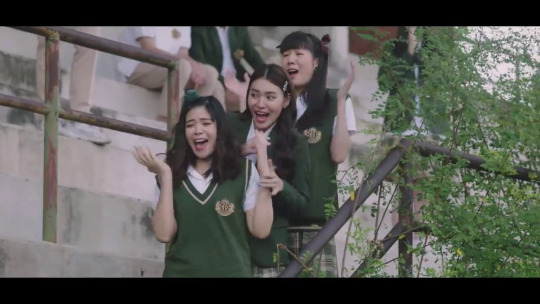
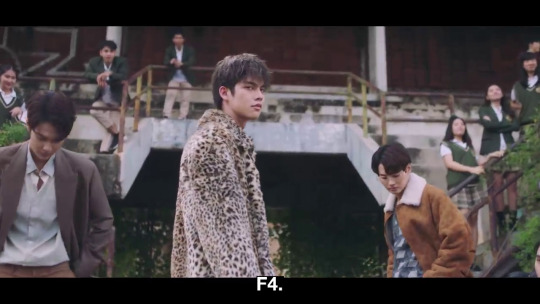
Domyouji (called Thyme in this version) clothing taste is appropriately awful. Those clashing leopard prints are as big a crime as his bullying club. But also, I have never seen this actor in anything (I know he became famous due to 2gether which was a huge hit of a BL series, but I don’t do college fluff, not my thing) but I love him for this role. He’s got the great “psycho who would knife you for kicks” vibe.
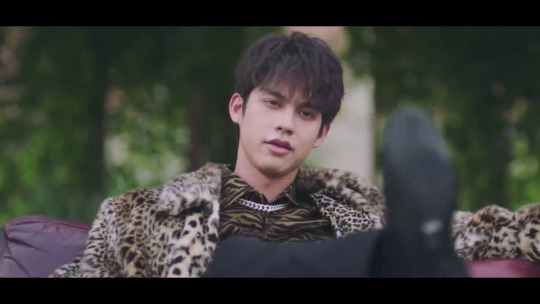
Seriously, he is THE WORST! And it’s glorious. No studious bridge player here.
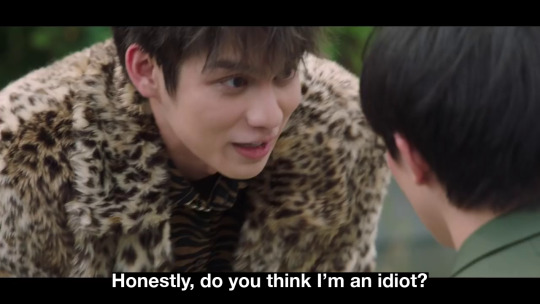
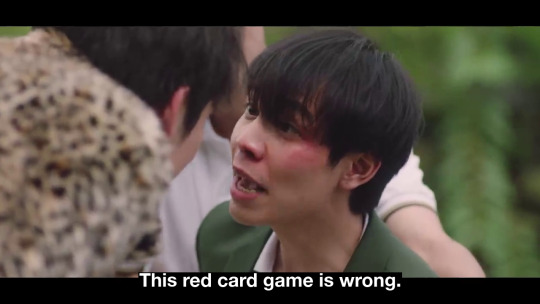
He is gonna get athlete’s foot walking in that dirty warm water.
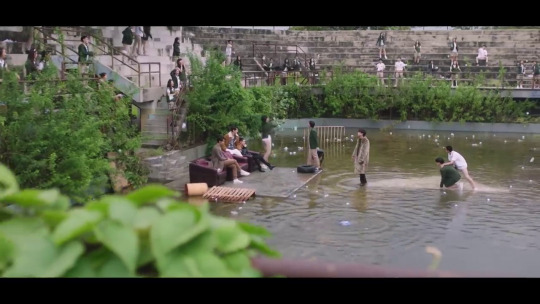
Good luck, kid!
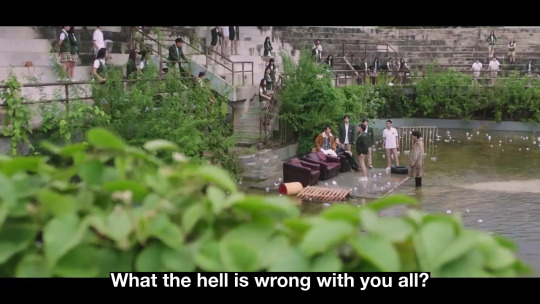
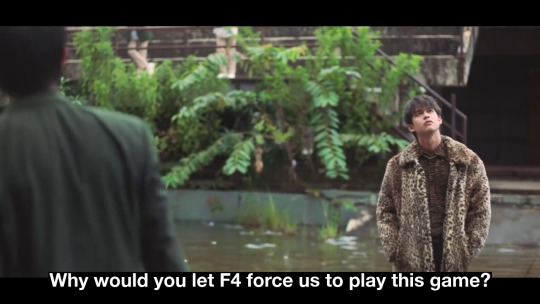
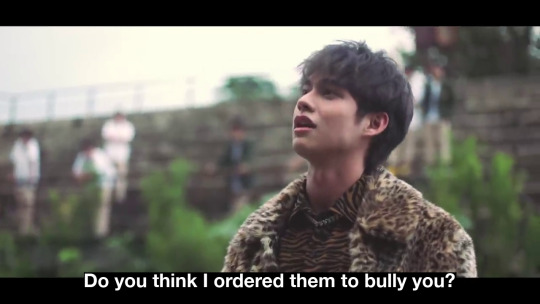
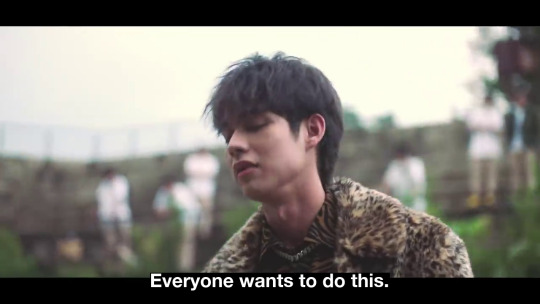
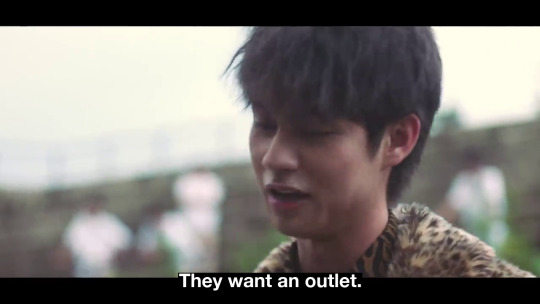
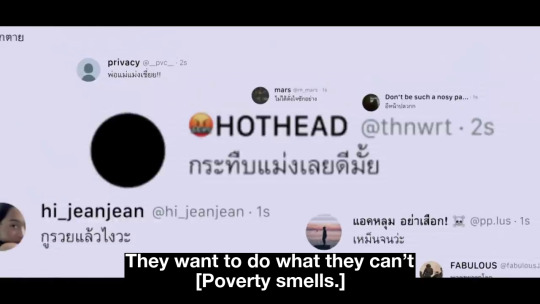
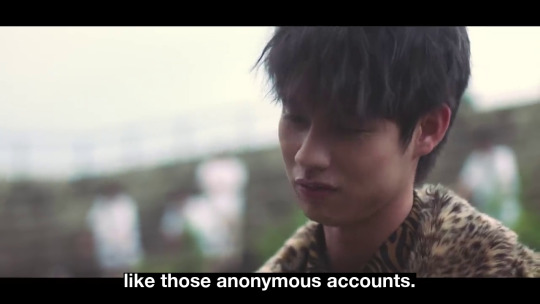
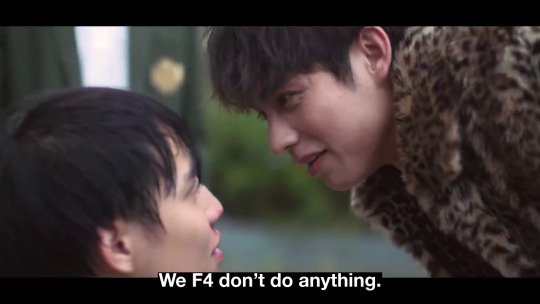
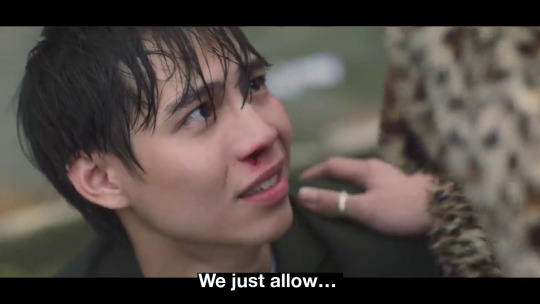
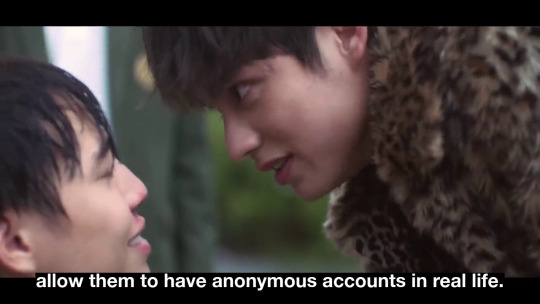
And he walks off with his posse, leaving this whistleblower to be beaten within an inch of his life (one of his buddies off-hand mentions “leave him alive.”) That is why I never thought any of the four were OK and Makino’s starry-eyed crush on Rui was delusion - sure he doesn’t beat people up himself but neither he nor the rest of them stop their buddy from running a reign of terror and actually assist him. Also mmmm the hypocrisy!
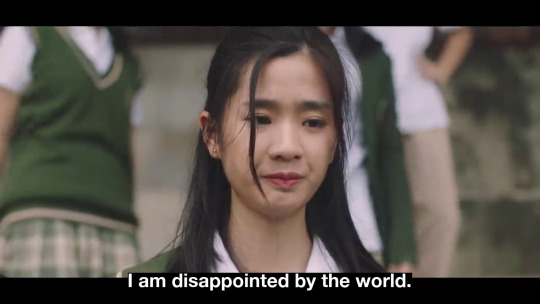
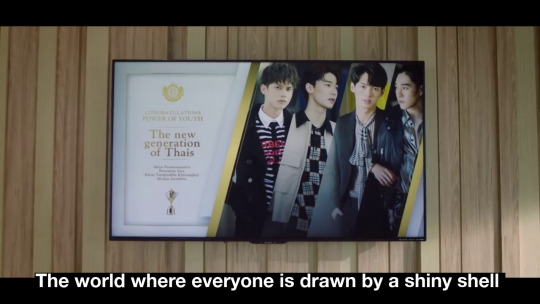
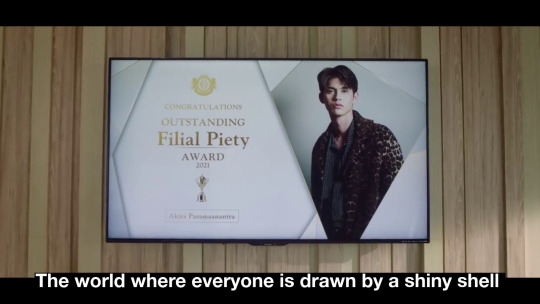
#finally someone who acknowledges the Taiwanese ver on the internet!!#*won't speak abt the Korean and Chinese ver too (unless it's abt overall hyd topic) lol#bc the added stories and favoring of the SL in the Korean ver are so annoying to me#f4 thailand was the modern hyd adaptation that is as good as MG 2001 which MG 2018 tried so hard to be but failed imo no hate pls#*still guilty on still having hyd and matsujun on watchlist tho my apologies#meteor garden#boys over flowers
123 notes
·
View notes
Text
Censored Chinese BLs I love for people who don't know what they are or want to find more.
Censored Chinese dramas refer to Chinese dramas that are based on gay source material and are adapted to screen, but due to strict restrictions in China, they must redact most of the gay interactions. Even so, Chinese productions work on a little budget and use workarounds to make the romance as clear as possible without getting taken off air. Some fail, some succeed. All of them make it pretty clear to viewers, though, that these characters are in love.
Also, for non Cdrama watchers, most Cdramas are LONG. I'm talking 30-45 minute episodes for 30 episodes on average, so if you want to start one get ready for an investment. There are shorter ones, but honestly, I think it's worth the investment.
Continue on for examples and recs.
The Untamed (2019)- The big boy. If anyone tells you they watch Chinese bromance, this one was likely their first. It is the most popular among these. It's on Netflix.

Word of Honor (2021) - Another popular one and this one got some of the most in your face gay shenanigans on screen. Also, one of their workarounds was having the actors mouth much gayer lines and dub it over (All Chinese audio is dubbed over in dramas). Maybe they just were at a good time period, maybe because the actors were so popular, maybe the censors were asleep, but we love her. Also, on Netflix.

Guardian (2018)- Another more popular one kinda makes a trifecta with the other two. This one got away with some good moments. I can only now find it on YouTube, but the audio sometimes gets cut off.

Killer and Healer (2021)- This one is a lot less popular than the first three. They got away with quite a bit but got even more cut out, but this one has its deleted scenes available to view online! Available on Viki and Youtube.

Winter Begonia (2020)- This one got a little bigger because of how artistic it is. It had a beautiful setting and costuming. They have a bit of a slow burn, but they definitely have their moments. Available on Viki.

S.C.I. Mystery (2018)- A household name purely because they got away with so much. Including a kiss disguised as CPR, sleeping in the same bed, etc. The budget is TINY, though, so if you can't handle everything looking like a set and poor graphics, this might not be for you. On Youtube.

Justice in the Dark (2023)- Not yet completed and has been on the back burner for a couple of years, but she's back baby, now airing in Japan. Pretty heavy on the gay, thus why they didn't pass censors after episode 8. I have no idea where to watch it. Fans are working on subbing.

Spirealm (2024)- Also one of the dramas that nearly didn't make it. Got put up, taken down, put back up on a different site. But she exists, and it is one of the gayest dramas on this list. I would say it beats out what Word of Honor got away with. On Viki.

Sleuth of the Ming Dynasty (2020)- This drama feels gay most of the time, straight for a short period of time, but they had nice moments, and they had a higher budget, directed by Jackie Chan, so you know the fighting is good. On Viki.

Advance Bravely (2017)- Started reading the book, but I have only seen clips of the show. It looks like it has potential in that older show, cheesy way, but they certainly got away with a lot because they were earlier in the timeline. On Viki and IQiyi.

Stand by Me (2023)- Haven't finished this one yet, but it is up there in chemistry. It was really hard to find, but it is on WeTV. No gifs unfortunately.

Honorable Mentions
Addicted (2016)- A canonically gay drama, the only canon gay drama to be made and released in China pre-ban. It is toxic, I warn you. It was made in 2016, prime toxic BL time. We must honor those who came before, though. It was canceled halfway through. Available on YouTube and Viki.

Meet You at the Blossom (2024)- Another canon BL, this one picked up in Thailand. The actors are Chinese, the language, and the backdrop. Everything behind the scenes is thai. It is also toxic, but less than Addicted, another win for Chinese BL, opening up possibilities.

The rest will not be based on gay source material but feel at the same level as the others on the list.
Mysterious Lotus Casebook (2023) - I feel that the new Chinese tactic to convey gay subtext and cover it up is to make everyone act equally romantic toward everyone, which in turn is creating polycules, which is lovely for me. This drama is no exception. Available on IQiyi.

Fangs of Fortune (2024) - A much larger and more complicated polycule complete with lesbians and straights. Available on IQiyi.


Silent Criminal (2020) - This one felt like it was supposed to be gay, and they tried to shove a female lead between them to diffuse the tension. Available on Viki and IQiyi.

Wuliang (2020) - I gotta be honest, when I first saw this movie, I didn't get the hype, but after some time I really appreciate the visuals and themes that have stuck with me, I think it was just too short. Unavailable legally without a vpn.

Yin Yang Master (2020) - This movie was very much an enemies to lovers sub plot with a fantastical main plot that looks beautiful. Available on Netflix.

Any Lost Tomb Adaptation (2015-2025) - The ships in this franchise span books, movies, shows, comics, etc. They are visible in any adaptation, so feel free to explore.

A League of Nobleman (2023) - This one is also a nice polycule opportunity. It feels lighter than some of the others on the list, but still very much a bromance. Available on Viki.

Under the Skin (2022) - This one makes me more unsure whether it was intended to even be a bromance at all, but by the second season they definitely blossomed into something beautiful and they are backdropped by some amazing and unique plots and cases. There are also some sweet shipping possibilities within, but I don't want to spoil. Available on Viki.

My Roommate is a Detective (2020) - Now this one was definitely meant to be a bromance, but also a straight romance. Unfortunately, the female lead drove me absolutely up the wall, then when they had another chance with the same two leads and director to do another drama called Checkmate, it was boring, so... start at your own peril and be warned, I am no women hater, she is just... you'll see.

I know of more, but these are the only ones I have at least seen enough to suggest (or not) to other people. I thought all this time spent on this media might as well be used somehow. Hopefully this helps you find a new drama or a new type of drama or dramas in general. Happy watching!
#chinese bl#chinese bromance#the untamed#word of honor#guardian cdrama#winter begonia#killer and healer#s.c.i. mystery#justice in the dark#the spirealm#the sleuth of ming dynasty#advance bravely#stand by me 2023#addicted 2016#meet you at the blossom#mysterious lotus casebook#fangs of fortune#silent criminal#wuliang#yin yang master: DOE#lost tomb#a league of nobleman#under the skin 2022#my roommate is a detective#drama recommendations
205 notes
·
View notes
Text
🎞️ ⋮ writer/fame dr


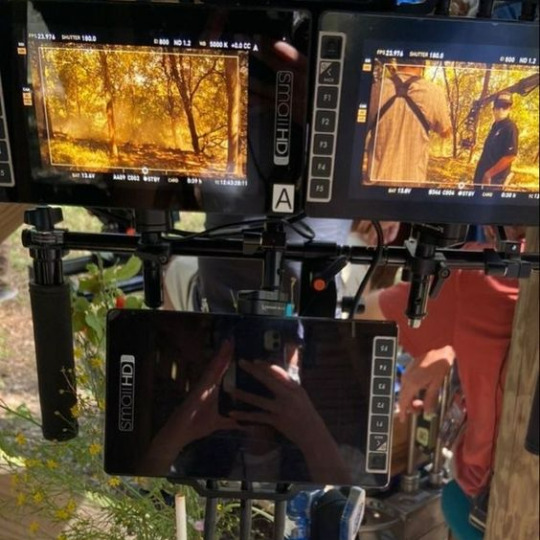



★┊ BASICS .ᐟ
timeline:
this dr takes place around late august of 2022 due to the fact i intend to be part of one of the films i work on right from its beginning
locations:
los angeles, california (main)
vancouver, canada
new york, new york
san antonio, texas
london, england
notes:
i scripted out a lot of things that occur in this reality (due to the fact i scripted the timeline of everything somewhat similar)
some movies in my filmography are book adaptations that do not exist in this reality however exist in mine and most tv-shows in my filmography are cancelled shows in this reality so i decided to make them continued in my dr (just incase of some confusion hehe)

★┊ ABOUT ME .ᐟ
name: lilian maricel villaécija
nicknames: lily, lia, celia, mary/mari
gender & pronouns: demigirl || she/they
birthday: august 11th, 1980
height: 5’6”/167 cm
zodiac sign: leo
mbti: enfp
nationality & ethnicity: american || filipino-chinese
occupations:
screenwriter
script supervisor
production designer
director of photography
make-up artist
storyboard artist
aesthetic:


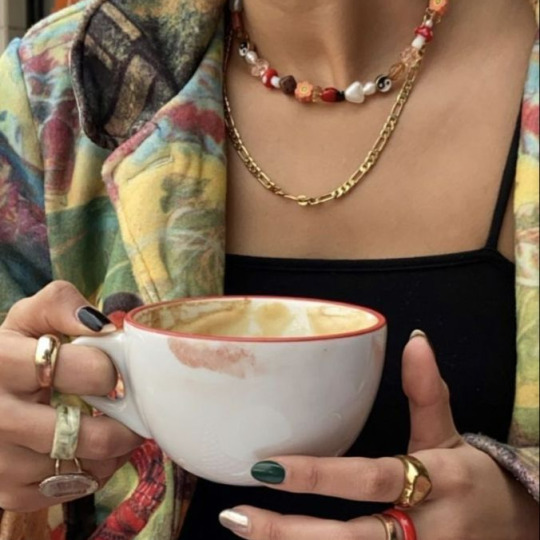

★┊ CAREER .ᐟ
movies:
center stage (2000)
in the mood for love (2000)
uptown girls (2003)
eternal sunshine of a spotless mind (2004)
pride & prejudice (2005)
the devil wears prada (2006)
black swan (2010)
if i stay (2014)
la la land (2016)
lady bird (2017)
the glass castle (2017)
to the bone (2017)
the greatest showman (2017)
oceans 8 (2018)
crazy rich asians (2018)
always be my maybe (2019)
little women (2019)
all the bright places (2020)
pieces of a woman (2020)
last night in soho (2021)
everything everywhere all at once (2022)
one last stop (2023) [film adaptation of the book by casey mcquinston]
tv shows:
grey's anatomy (s2-s13) || 2005-2016)
rupaul's drag race (s5-s14 || 2013-2022)
rupaul's drag race: all stars (s2-s5 || 2016-2020)
anne with an e (s1- || 2017-present/ongoing)
the marvelous mrs. maisel (s1-s5 || 2017-2023)
pose (s1-s3 || 2018-2021)
instinct (s1-s3) (2018-2023)
the umbrella academy (s1-s4 || 2019-2024)
the haunting of bly manor (s1 || 2020)
bridgerton (s1- || 2020-present/ongoing)
yellowjackets (s2- || 2023-present/ongoing)

★┊ RELATIONSHIPS .ᐟ
╰┈➤ FRIENDS
(i have a lot of friends due to the fact i've been in the industry for quite a while now, but these are just my closest)




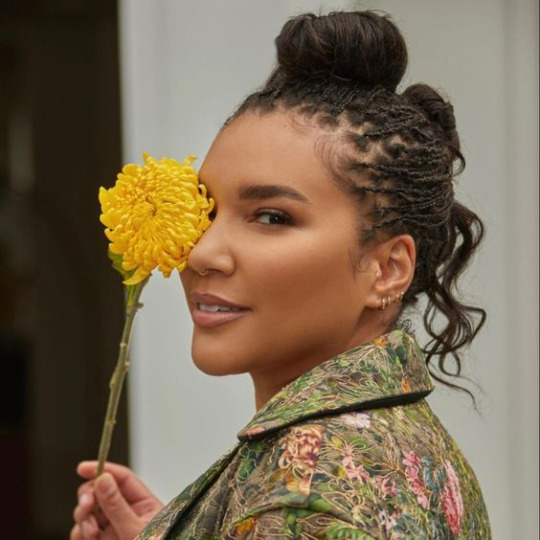

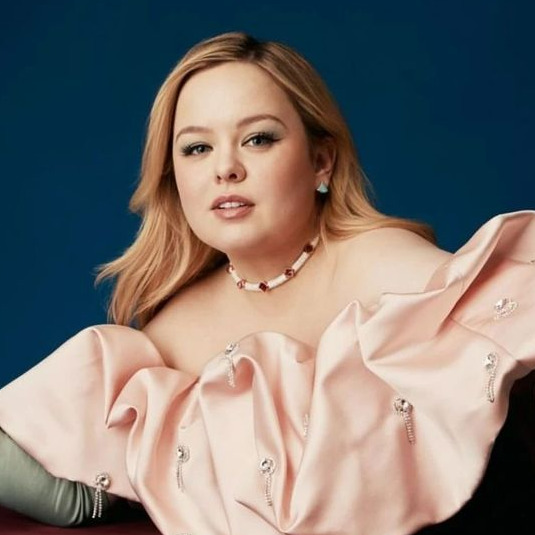


trixie mattel
shea couleé
katya zamolodchikova
kate walsh
emmy raver-lampman
sandra oh
nicola coughlan
gemma chan
simone kessell
a huge special mention as well to @ixzotica a.k.a. aaliyah sinclair in my dr!! the one and only best friend, neighbor, sister, and platonic soulmate of mine in every single universe <3

╰┈➤ PET
name: mari-pusa (Mariposa)
nicknames: mari, choco butternut,
gender & pronouns: female || she/her
birthday: january 15
zodiac sign: capricorn
mbti: istj
breed: tortoiseshell

╰┈➤ S/O
gonna keep him a redacted for now as i am not yet comfortable sharing much about my dr but i just wanted to let u guys know he's an actor, he's a libra, and that he exists HSHJSHDSHKJHL

★┊ EXTRAS .ᐟ
links:
patter banner || gradient divider || star divider || heart divider
note:
feel free to ask me about this dr or any shifting related thing in general!! i'd really appreciate it! : ]

#shifting#reality shift#reality shifting#manifestation#shifting realities#shifting consciousness#shifting to desired reality#shifting methods#shifting motivation#shifting stories#desired reality#shifting community#shifting introduction#dr intro#fame dr#fame desired reality#shifting blog#shiftblr#shifters#reality shifter#poc shifter#manifesting#master manifestor#loassumption#law of assumption#loa tumblr#loablr#anti shifters dni#shifting antis dni
268 notes
·
View notes
Text

Ask, and ye shall receive. Posting the Nie Huaisang Essay for his birthday, I hope the three Nie Huaisang Enjoyers will like this♡
Nie Huaisang, GNC Icon?
An analysis of the construction of Chinese masculinity and manhood as it relates to perceived gender-nonconformity in Chinese male characters in period dramas by western fans.
「你小心点!这个呢可是我最喜欢的一副扇子。你看 画工精巧构图別致。怎么样 是不是当世极品哪?」
“Be careful! This is my favorite folding fan. Look, it’s exquisitely painted and uniquely constructed. How is it? It’s of the highest grade, isn’t it?”
― Nie Huaisang, episode 35 of 陈情令 The Untamed (2020)
It was late 2019 when I first heard about Chen Qing Ling, in countries outside of China and other majority-Chinese speaking areas better known as The Untamed.[1] I had, at the time, not watched a proper C-drama in years. Intrigued by CQL’s sudden popularity, however, I decided to check it out; after all, it was not every day that a C-drama gains popularity in the west. Even with the recent uptick in East-Asian media gaining traction[2], it was still a surprise to see a xianxia series getting the same level of adoration in online circles I had previously only seen dedicated to Disney intellectual property.
Based on the web-novel Mo Dao Zu Shi (Founder of Demonic Cultivation) by MXTX, CQL tells the story of Wei Ying, courtesy name Wuxian, and details the events in the cultivation world surrounding his teenage years until his untimely death several years later, and the mystery surrounding his resurrection yet 13 years afterwards. A series spanning roughly 20 years in 50 episodes, CQL is an epic that at the same time leaves out a lot of the original novel. After all, it is an adaptation of a danmei-genre novel: focusing on male-male romance generally created by and for women and sexual minorities (Lavin et al 2017). Considering the strict media regulations in China, most of the homoeroticism either had to be censored or subtextual (Xu 2014; Shaw and Zhang 2018).
With this popularity, however, also came the very western-centric, colonialist, and orientalist interpretations of the text. Focusing in particular on the way that Asian men have been and are seen as more feminine (Han 2016; Han 2006; Song 2004) and how western fans continue to perpetuate this rhetoric when consuming C-dramas, I will take as a case study the way that Nie Huaisang, one of the main supporting characters in CQL, has been hailed as a gender-nonconforming, nonbinary, and/or trans icon by western fans. Starting with expounding on the danmei genre as a whole, and what that means for Nie Huaisang as a character, I shall then discuss the ways that Chinese masculinities are constructed and how Nie Huaisang exemplifies the wen ideal of masculinity, being a scholar and an artist. Finally, I will talk about western fans’ attitudes being culturally insensitive on top of reiterating and reinforcing western-centric, colonialist, and orientalist tropes and ideals surrounding masculinity and manhood.
Danmei, derived from the Japanese term tanbi and the Chinese equivalent to BL (Boys’ Love), although by now it has transformed into its own subculture instead of wholly resembling its Japanese counterpart, literally means “addicted to beauty” (Feng 2009; Lavin et al 2017; Kam 2012). It depicts an idealized love between (young) male characters, who also embody ideal, generally androgynous, beauty standards, and whose beauty is at the forefront of the text. These beauty standards extend even to the side characters, and in drama adaptations the casts tend to boast idols and young, conventionally attractive actors in all roles ― as is the case with CQL.
What this means for Nie Huaisang, who is neither a love interest nor a main character, is that he would still have to fall into the trope of being a beautiful man, and have it be natural within the narrative. Chinese beauty standards here differ from the eurocentric and oftentimes colonialist norm that western fans are used to. Furthermore, culturally and historically the androgynous looks that are romanticized and exalted are constructed within the framework of masculinity; in other words, while for westerners androgyny might mean gender-nonconformity, nothing could be farther from the truth when looking at how Chinese masculinity and manhood are constructed (Kam 2012).
Beyond aestheticism, however, which is more of a danmei staple (Feng 2009), there are many other ways in which masculinity and manhood were conceptualized in ancient China. Nie Huaisang, being a scholar, embodies a very distinct masculine ideal (Kam 2002; Kam 2015; Song 2004). The scholar class was a male-only, and, indeed, one of the most venerated of professions held in ancient China. Nie Huaisang, being a sect heir and later sect leader, furthermore was well-off, meaning that he couldn’t be in a “feminine” scholarly position either ― marginalized/poor scholars were emasculated by being in the service of higher-ranking men, think of pinshi (poor scholars), muyou (secretary scholars), or hanshi (obscure scholars), which could never be the case for Nie Huaisang (Kam 2016). Within the framework of Chinese masculinity, and specifically the wen-wu (literary-martial) understanding and conceptualization of it, scholars were further preferred over their martial counterparts; Nie Huaisang, by virtue of being a scholar and a beauty, even lives up to the romanticized masculine ideal of the caizi jiaren[3] (“scholar-beauty”) hero (Song 2004). While being a well-rounded individual was of course appreciated more[4], as a poet, artist, and shrewd intellectual Nie Huaisang more than conforms to male gender roles as they exist within the cultural and historical context (Kam 2002; Kam 2015).
「大哥这人你也了解 一向鲁莽 又容易冲动。可你不像他。你自小理性内敛、又习得奇门道用。」
“You know eldest brother[5] well. He’s always been reckless and impulsive. But you are not like him. You have been rational and restrained since you were young, and you are good at Daoist magic.”
― Jin Guangyao to Nie Huaisang, 乱魄 Fatal Journey (2020)
In Fatal Journey, which is a spin-off movie of CQL focusing solely on the Nie sect, Jin Guangyao tells Nie Huaisang the above. Nie Mingjue is in the series and movie both depicted as a strong fighter; juxtaposing both brothers, one who is good at martial pursuits and one who follows intellectual pursuits, it becomes clear that here, too, “rationality” and therefore being an intellectual is preferred over the brute strength in cishetero-patriarchal hypermasculinity that the west favors, while simultaneously marking both brothers as still conforming to masculine standards.
The fact that western fans interpret Nie Huaisang to be “GNC-coded”, then, has to do with their own preconceptions surrounding how western (white, eurocentric) masculinity and manhood are constructed, and taken as the norm for these concepts. Because of orientalism, East Asian men as a whole are feminized, emasculated, and infantilized (Han 2016; Han 2006; Kam 2012; Kapac 1998). Western fans consuming and interacting with East Asian media will be done through such a lens, and when uncontested, only perpetuate this rhetoric. In period dramas such as CQL, where everyone wears flowing robes and has long hair[6] ― historically and culturally accurate ― western audiences will instead interpret this to mean their conceptions of Chinese people to be more feminine aren’t unfounded. While the construction of Chinese masculinities have changed since ancient times (Kam 2015; Song 2010), and the representations of Chinese masculinities in TV have become more globalized (Song 2010), it nevertheless does not mean that male characters in period dramas are ever seen as feminine or deliberately emasculated through being a scholar as opposed to a warrior ― that is a purely western interpretation.
Nie Huaisang’s mannerisms, while seemingly “feminine” by western standards ― his love for fans, his artistry, his intellect, his aversion to violence ― all have cultural, contextual, historical, and in-universe explanations that have nothing to do with his manhood nor his masculinity[7]; he was written as a frivolous “second young master” with no ambition to take on the role as sect leader[8], and his sect’s cultivation style actively poisoned the mind and body. Is it any wonder, then, that he did not take up the dao? While he doesn’t conform to the cultivation world’s standards of a cultivator and later as sect leader, a role he was forced into after his brother’s death, this does not make him gender-nonconforming. Western audiences’ preoccupation with his antipathy towards using his dao and not fighting furthermore points to their subscription to western-centric, colonialist ideals of hypermasculinity (Han 2016; Song 2004), which they assume are universal, and therefore ascribing Nie Huaisang traits that simply aren’t there. In the end, his wielding of a fan and brush instead of a dao is then interpreted as him being effeminate and not conforming to gender roles, instead of understanding that as a scholar and artist, he conforms to gender roles just fine, but does not conform to traditional cultivator roles.
In a rapidly globalizing world where it is increasingly easy to gain access to media made elsewhere, western audiences’ inability to understand that their worldview is limited actively perpetuates orientalist tropes and racist misconceptions. The way that Nie Huaisang is seen as gender-nonconforming by fans points to the racialization of gender and its construction. A scholar and an intellectual, wielding a fan and being an expert strategist, Nie Huaisang is at times reminiscent of Zhuge Liang, a legendary historical scholar. Yet, while he conforms to male gender roles within his own cultural context, being emblematic of the wen ideal of masculinity, western audiences cannot conceive of him as a man because he deviates from white cisheteronormative patriarchy.
This is not to say that interpreting any character as a minority should not be done. Representation is important ― we all know this. Personally, I would even welcome it as a gender-nonconforming nonbinary person myself. The way western fans go about it, however, only shows they do so through a western-centric, colonialist, and orientalist lens. The point, then, is not that he cannot be gender-nonconforming ― it is to change how western audiences interact with and interpret non-western media.
FOOTNOTES
I will henceforth refer to the series as CQL.
Think for example of how K-pop is becoming more and more mainstream by the day, and how anime and manga are as much part of pop culture as comics and cartoons.
A type of novel depicting the story of a young, rich, beautiful scholar and his female love interest.
Take, for example, Liu Bei, Guan Yu, and Zhuge Liang from Romance of the Three Kingdoms; while all three are undoubtedly held up as paragons of masculinity and male role models even now, Guan Yu, being a martial god (thus epitomizing wu), and Zhuge Liang, being an unparalleled intellectual (thus epitomizing wen), both defer to Liu Bei, who embodies both parts of the wen-wu dichotomy equally, being an adept swordsman and an able strategizer.
This refers to Nie Mingjue, Nie Huaisang’s eldest brother and also Jin Guangyao’s eldest sworn brother. He was at the time the sect leader of Qinghe (where the Nie clan was based).
Long hair has long been a confucian ideal, and not gendered because of it. As one’s body is granted to them by their parents, and one has to pay respect to their elders, cutting hair is akin to desecrating the body and disrespecting one’s elders.
Beyond being explicitly stated in the text multiple times, the official artbook of the drama also reinforces this, as does Nie Huaisang’s propensity to quote poetry or waxing lyrical. One memorable line at the end of the series especially brings this home: 「这山川风物四时美景 真是无论看多久 都不会 觉得厌。我呢 是一个识趣的人 该我做的我不会假手他人 如果不该我做的 我也做不来。」(“These mountains and rivers, the scenery of all seasons – I really do feel that no matter how long I look , I won’t become bored of them. As for me, I’m a sensible man. For the things I should do, I won’t shirk. But for things that aren’t my business, I won’t meddle in.”)
After all, we have already established he conforms to Chinese standards of masculinity, and as a Chinese male character from a mainland Chinese production that was made primarily for Chinese-speaking audiences, that is honestly all the context needed to understand him as a character.
Wei Wuxian asks Nie Huaisang if he would ever have the intention to become head cultivator (i.e. leader of all the sects), and by answering thus, invoking scenic imagery and speaking in a higher register, which, yes, is in-character for him, also has an added layer. Reminiscent of Chinese dynastic succession struggles, unambitious siblings tended to throw themselves into the arts, poetry, and music, while eschewing politics and power plays in the hopes that their siblings who had ambitions for the throne would not kill them. Nie Huaisang, here, is conjuring up these same sentiments, hinting to Wei Wuxian that he is not scheming to be head cultivator by talking poetically, and further implicitly pleading with his old friend not to suspect his motives and not to kill him because of them.
BIBLIOGRAPHY
Feng, Jin. 2009. “���Addicted to Beauty”: Consuming and Producing Web-based Chinese “Danmei” Fiction at Jinjiang.” Modern Chinese Literature and Culture 21, no. 2 (fall): 1-41. https://www.jstor.org/stable/41491008.
Han, C. Winter. 2016. “From “Little Brown Brothers” to “Queer Asian Wives”: Constructing the Asian Male Body.” In Body Aesthetics, edited by Sherri Irvin, 60-80. Oxford: Oxford University Press.
Han, Chong-suk. 2006. “Being an Oriental, I could Never Be Completely a Man: Gay Asian Men and the Intersection of Race, Gender, Sexuality, and Class.” Race, Gender & Class 13, no. 3/4 (2006): 82-97. http://www.jstor.org/stable/41675174.
Kam, Louie. 2016. Changing Chinese Masculinities: From Imperial Pillars of State to Global Real Men. Hong Kong: Hong Kong University Press.
Kam, Louie. 2015. Chinese Masculinities in a Globalizing World. New York: Routledge.
Kam, Louie. 2012. “Popular Culture and Masculinity Ideals in East Asia, with Special Reference to China.” The Journal of Asia Studies 71, no. 4 (November): 929-943. https://doi.org/10.1017/S0021911812001234.
Kam, Louie. 2002. Theorising Chinese Masculinity: Society and Gender in China. Cambridge: Cambridge University Press.
Kapac, Jack. 1998. “Culture/Community/Race: Chinese Gay Men and the Politics of Identity.” Anthropologica 40, no. 2 (1998): 169-81. https://www.jstor.org/stable/25605895.
Lavin, Maud, Ling Yang, and Jing Jamie Zhao. 2017. Boys’ Love, Cosplay, and Androgynous Idols: Queer Fan Cultures in Mainland China, Hong Kong, and Taiwan. Hong Kong: Hong Kong University Press.
Shaw, Garreth, and Xiaoling Zhang. 2018. “Cyberspace and gay rights in a digital China: Queer documentary filmmaking under state censorship.” China Information 32 (2), 270-92. https://doi.org/10.1177/0920203X17734134.
Song, Geng. 2010. “Chinese Masculinities Revisited: Male Images in Contemporary Television Drama Serials.” Modern China 36, no. 4 (2010): 404-34. https://doi.org/10.1177/0097700410368221.
Song, Geng. 2004. The Fragile Scholar: Power and Masculinity in Chinese Culture. Hong Kong: Hong Kong University Press.
Xu, Beina. 2014. “Media Censorship in China.” Council on Foreign Relations, September 25, 2014. https://www.files.ethz.ch/isn/177388/media%20censorship%20in%20china.pdf
#ling.txt#mdzs#cql#nie huaisang#meta#I GUESS. IDK WHAT TO TAG THIS LMFAO#cringe culture is dead in this house we write academic analysis posts abt our favs or whatever♡#i miss marcus bc i literally asked him to read this when i had first finished it#and he (like all real ling lautakwah née xiaoguiwang fans know) immediately clocked that i must've been in immense pain writing that#footnote abt liu b*i LMFAO like yeah i DO hate that punk ass baby-punting bitch#unfortunately culturally hes venerated as the ideal guy or whatever. fuck him tho♡#also if there are formatting issues it's bc i copy pasted it frm a fucking pdf and did it all on mobile. dont @ me it's 11pm and ive been#working allllll day long 🤧
73 notes
·
View notes
Text
[A]nti-homeless laws [...] rooted in European anti-vagrancy laws were adapted across parts of the Japanese empire [...] at the turn of the 20th century. [...] [C]riminalising ideas transferred from anti-vagrancy statutes into [contemporary] welfare systems. [...] [W]elfare and border control systems - substantively shaped by imperial aversions to racialised ideas of uncivilised vagrants - mutually served as a transnational legal architecture [...] [leading to] [t]oday's modern divides between homeless persons, migrants, and refugees [...].
---
By the Boer Wars (1880–1902), Euro-American powers and settler-colonial governments professed anxieties about White degeneration and the so-called “Yellow Peril” alongside other existential threats to White supremacy [...]. Japan [...] validated the creation of transnational racial hierarchies as it sought to elevate its own global standing [...]. [O]ne key legal instrument for achieving such racialised orders was the vagrancy concept, rooted in vagrancy laws that originated in Europe and proliferated globally through imperial-colonial conquest [...].
[A]nti-vagrancy regulation [...] shaped public thinking around homelessness [...]. Such laws were applied as a “criminal making device” (Kimber 2013:544) and "catch-all detention rationale" (Agee 2018:1659) targeting persons deemed threats for their supposedly transgressive or "wayward interiority" (Nicolazzo 2014:339) measured against raced, gendered, ableist, and classed norms [...]. Through the mid-20th century, vagrancy laws were aggressively used to control migration [and] encourage labour [...]. As vagrancy laws fell out of favour, [...] a "vagrancy concept" nonetheless thrived in welfare systems that similarly meted out punishment for ostensible vagrant-like qualities [...], [which] helps explain why particular discourses about the mobile poor have persisted to date [...].
---
During high imperialism (1870–1914), European, American, and Japanese empires expanded rapidly, aided by technologies like steam and electricity. The Boer Wars and Japan's ascent to Great Power status each profoundly influenced trans-imperial dynamics, hardening Euro-American concerns regarding a perceived deterioration of the White race. [...] Through the 1870s [...] the [Japanese] government introduced modern police forces and a centralised koseki register to monitor spatial movement. The koseki register, which recorded geographic origins, also served as a tool for marking racialised groups including Ainu, Burakumin, Chinese, [...] and Korean subjects across Japan's empire [...]. The 1880 Penal Code contained Japan's first anti-vagrancy statute, based on French models [...]. Tokyo's Governor Matsuda, known for introducing geographic segregation of the rich and poor, expressed concern around 1882 for kichinyado (daily lodgings), which he identified as “den[s] for people without fixed employment or [koseki] registration” [...].
Attention to “vagrant foreigners” (furō-gaikokujin) emerged in Japanese media and politics in the mid-1890s. It stemmed directly from contemporary British debates over immigration restrictions targeting predominantly Jewish “destitute aliens” [...].
The 1896 Landing Regulation for Qing Nationals barred entry of “people without fixed employment” and “Chinese labourers” [...], justified as essential "for maintaining public peace and morals" in legal documents [...]. Notably, prohibitions against Chinese labourers were repeatedly modified at the British consulate's behest through 1899 to ensure more workers for [the British-affiliated plantation] tea industry. [...]
---
Simultaneously, new welfaristic measures emerged alongside such punitive anti-vagrancy statutes. [...] Such border control regulations were eventually standardised in Japan's first immigration law, the 1918 Foreigners’ Entry Order. [...] This turn towards instituting racialised territorial boundaries should be understood in light of empire's concurrent welfarist turn [...]. Japanese administration established a quasi-carceral workhouse system in 1906 [in colonized territory of East Asia] [...] which sentenced [...] vagrants to years in workhouses. This law still treated vagrancy as illegal, but touted its remedy of compulsory labour as welfaristic. [...] This welfarist tum led to a proliferation of state-run programmes [...] connecting [lower classes] to employment. Therein, the vagrancy concept became operative in sorting between subjects deemed deserving, or undeserving, of aid. Effectively, surveillance practices in welfare systems mobilised the vagrancy concept to, firstly, justify supportive assistance and labour protections centring able-bodied, and especially married, Japanese men deemed “willing to work” and, secondly, withhold protections from racialised persons for their perceived waywardness [...] as contemporaneous Burakumin, Korean, and Ainu movements frequently protested [...]. [D]uring the American occupation (1945–1952), not only were anti-vagrancy statutes reinstituted in Japan's 1948 Minor Offences Act, but [...] the 1946 Livelihood Protection Act (Article 2) excluded “people unwilling to work or lazy” from social insurance coverage [...].
---
Imperial expansion relied on not only claiming new markets and territories, but also using borders as places for negotiating legal powers and personhood [...]. Japan [...] integrated Euro-American ideas and practices attached to extraterritorial governance, like exceptionalism and legal immunity, into its legal systems. [...] (Importantly, because supportive systems [welfare], like punitive ones, were racialised to differentially regulate mobilities according to racial-ethic hierarchies, they were not universally beneficial to all eligible subjects.) [...]
At the turn of the century, imperialism and industrial capitalism had co-produced new transnational mobilities [which induced mass movements of poor and newly displaced people seeking income] [...]. These mobilities - unlike those celebrated in imperial travel writing - conflicted with racist imaginaries of who should possess freedom of movement, thereby triggering racialised concerns over vagrancy [...]. In both Euro-American and Japanese contexts, [...] racialised “lawless” Others (readily associated with vagrancy) were treated as threats to “public order” and “public peace and morals”. [...] Early 20th century discourse about vagrants, undesirable aliens, and “vagrant foreigners” [...] produced [...] "new categories of [illegal] people" [...] that cast particular people outside of systems of state aid and protection. [...] [P]ractices of illegalisation impress upon people, “the constant threat of removal, of being coercively forced out and physically removed [...] … an expulsion from life and living itself”.
---
All text above by: Rayna Rusenko. "The Vagrancy Concept, Border Control, and Legal Architectures of Human In/Security". Antipode [A Radical Journal of Geography] Volume 56, Issue 2, pages 628-650. First published 24 October 2023. [Bold emphasis and some paragraph breaks/contractions added by me. Text within brackets added by me for clarity. Presented here for criticism, teaching, commentary purposes.]
177 notes
·
View notes
Text
I've seen it all - Rating all adaptations of Cherry Magic ✩
☾ ⋆*・゚:⋆*・゚
Okay, so I tried to hunt down every adaptation of Cherry Magic! Thirty Years Of Virginity Can Make You A Wizard?! and watched them all.....like the chronically online loser expert I am.
THIS HAS SOME SPOILERS.
ˏˋ°•*⁀➷ Ratings:
[If I missed any adaptation lmk and I'll watch it and rate it!]
So here are my ratings (in the order in which I watched/read them):
Manga (The original source material, 2018) [6/10]
Thai drama (2023-2024) [9/10]
Japanese drama (2020) [8/10]
Anime (2024) [7/10]
Japanese Movie (2022) [note: this was a sequel to the J-drama]
Chinese Radio Drama (2019) [8/10]
Important note: I'm not sure if the radio drama and the drama CD are the same thing, just in case I'm going to separate the two. I couldn't find the OG Japanese drama CD with English subs anywhere so if any one knows where to find it then lmk. Not paying 20 bucks because I am below the poverty level (fully embodying the college student aesthetic <3).
: ̗̀➛ The Manga (2018)

My favorite volume cover <3
→ General thoughts:
This might be a little dumb but honestly, I had no idea that this manga was pretty recent. I thought that this was an older 2000's manga. I only found out when I looked up the production year for this blog post LMFAO.
Building on that, the art style is fairly unique and a breath of fresh air from the typical late 2010s manga art style. It definitely gave me nostalgia—but with less secondhand embarrassment. Also my favorite part is MC's emo bangs...when he's an office worker.
I found it fun how they didn't start off the series by glazing the male lead and his achievements (which was done in almost every other version.). This approach made the male lead a lot more approachable in my opinion and lessened the gap between the two.
The manga at the very start is extremely focused on the two main characters. They don't really introduce or highlight other characters until later on. (most notably Fujisaki and with the exception of MC's bestie). Manga is also pretty fast-paced in comparison to the other adaptations in my opinion. This is mainly because doesn't really spend a lot of time building up tension or introducing the characters. If anything it feels like the mangaka was going through every arc/major character interaction as if they were bullet points. You can also argue that the other adaptations are slow-paced in comparison to the manga, but in this household the majority rules.
Not a lot of focus on visual elements (unless it's to show emotion). The background is pretty basic and kept to a minimum which helps keep the focus on the relationship between MC and ML.
At the very start, the focus is put more on the awkwardness between the two characters. It's really light-hearted and doesn't particularly hold any strong tension or emotion. I like that because technically speaking the two of them are experiencing something new, I'm TIREDDD of seeing a character fall in love for the first time ever yet miraculously be an expert at it. The awkwardness of a first love and the inexperience that comes with it is a breath of fresh air when put into the context of two adults.
One thing that I really liked about the manga (and the series in general) is how the MC talks about the ethics of his mind-reading ability and actually feels guilty about taking advantage of it. I appreciate how he also comes clean to the ML. The ethics of these abilities, especially mind reading, is so interesting to me, especially considering how it's usually glossed over.
Also...I really appreciate how the MC doesn't look like a 16-year-old twink. He looks his age, a rare sight nowadays.
The perspective of the male lead is shown pretty early on. There isn't a lot of build-up for the alternate perspective. It felt pretty underwhelming when the ML revealed why he fell in love with MC. In my opinion, it failed to draw out strong emotion from the reader. The part where the male lead gets borderline sexually harassed at work also fell flat. I read it and thought "ok...well...that just happened" and quickly moved on.
[The flat delivery of the more emotional and "heavier" scenes is a consistent ick of mine. The manga does an amazing job of communicating the awkward and comedic properties of the series but completely fails at drawing out heavier emotions from the reader. This could just be a me thing though. I blame this fact on the lack of proper build-up and transitions. The switch between emotions happens too quickly, and the manga lacks proper transition panels, making character interactions seem inorganic. The series generally capitalizes on the "out of pocket" aspect of the character's thoughts and emotions. Everything is so random and unexpected which is what makes it funny and interesting, this however makes love confessions and more emotional scenes fall flat because, in the context of the series, these scenes are NOT meant to be comedic. Trying to blend serious and funny is generally difficult and something that a lot of mangakas struggle with. ]
Anyway, the ML's perspective is always a treat. Just a poorly built-up one. My man is also a whole green forest, I'm so happy that he didn't end up forcing himself on MC and instead respected his boundaries.
One thing that I noticed while re-reading the manga is how expressive the characters are, especially the male lead (finally out of cold aloof male lead jail). His awkward wink was so adorable tbh, a funny contrast to his extremely horny thoughts.

“But Mimi, isn't this contradictory? you *JUST* said that the manga suffers from sung jinwoo syndrome (A severe lack of emotional build-up which leads to extremely flat emotional scenes)!" Before you crucify me allow me to elaborate....
It’s simple, deeper emotions generally require more build-up, especially emotions (and emotional themes) that deviate from the main genre. Shyness, awkwardness, happiness, etc are all naturally a part of the traditional romcom slice-of-life genre. If the main emotion(s) that the reader gets across is light-hearted then the story naturally builds up to it and is something that the reader expects so they come into it prepared to feel said emotions. If you try to introduce an emotion such as sadness in this context then naturally you would need to properly build it up in order for the reader to properly feel and process it since it isn't expected (Even things done for 'shock' value still need appropriate build-up, it would just be done properly.). The characters here are very expressive in terms of emotions, but character expressiveness doesn't necessarily carry along to the reader.
I also love the side couple. Their mutual love for the cat is the highlight of the entire series tbh. ITS SO CUTE.
Anyway, to save you the pain of me ranting about the side couple ima make it short and sweet (look at how nice I am....I might make a separate post just to have a yap fest about them). The build-up towards their relationship was so well-written (dare I say even more than the main couple?). I'm so happy that they got their own happy ending.
→ Rating ✩✩✩✩✩✩
6/10
Honestly, this rating was a tough one for me to give because on one hand, the manga excelled in many ways and this is the original source material so it felt weird to give it a rating lower than its adaptations. However, I have quite a bit of reasons for my ratings, all of which were mentioned throughout the previous section but I'll summarize.
The manga left a lot to be desired when it tried to communicate deeper feelings, the characters felt awkward and the interactions felt really inorganic and flat during the "emotional" scenes. I don't really think it's an issue with the art style itself but rather an issue with the panel handling and management. There weren't a lot of transitional panels that helped strengthen the main emotional panels. I don't know if that makes sense because I don't really know the proper terminology but I hope that gets my point across. This is honestly a big thing because this is a romance slice-of-life manga where the main appeal and point of it is the emotions and the interactions between the characters. It's a very character-focused genre, and in this case where world-building is near nonexistent all the pressure falls on making sure that the two leads have smooth interactions. Which I feel like it didn't meet.
: ̗̀➛ Thai Drama (2023-2024)

Best Cherry Magic promotional picture in my very humble opinion.
→ General thoughts
This adaptation establishes really quickly the difference between MC's and ML's positions at the company. Not only does it establish this fact pretty early on but it also reinforces it quite a bit.
MC's relationships with those around him are a lot stronger than in any other adaptation. He also seems more well-liked and more socially active in his workplace. The intern is introduced pretty early on which is something that I appreciate. The birthday party was SO CUTE OMG. It was so funny and adorbs to see MC awkwardly giving ML a piece of birthday cake even though they never really interacted much till that point. Also, it helped establish a stronger bond between MC and Fujisaki (since she was a part of this small birthday celebration).
There is also the addition of Mrs. Cupid (I forgot her name so that will be the name that I'll use for her, also I think that this was a cultural addition) was pretty interesting. Her role as a mentor/mother figure to MC helped show that he isn't some reclusive hated loser in his workplace.
There's a LOT of emphasis on the relationships between characters in the workplace, which is a notable change when comparing it to other adaptations. It could be a cultural thing? This is my first Thai drama and delve into Thai media so I could be wrong (please don't beat me up). MC here is way more social. The intern is a lot more relevant here and is the reason why MC had to stay overtime.
The ML here is SO MUCH MORE awkward because the series establishes the difference between their positions pretty early on. It makes the difference between how he acts for the company (super put together and cool) and how he acts in front of MC (eagerly & shyly asking him about getting ice cream after the thank-you dinner) so CUTE. This is also something that differs from other adaptations because in the others they weren't able to choose where to eat.
The personality of Tsuge was so different it gave me whiplash. Like a complete 180. He gives off more playful and childish vibes here, starkly contrasting his quiet and aloof OG persona. He's also a lot more straightforward and bossy LMAO.
This and the rest of the adaptations have an advantage. They can use auditory elements to bring emotion to the scenes which I think is something that helps exaggerate events. For example, when ML was asking MC about the thank-you dinner, MC was listening to his thoughts and was very awkward. The typing heard in the background and the lack of background music help bring the scene to life by 1. making it look even more awkward since both ML and MC stay silent for extended periods of time and 2. Reinforcing the comedic office sitcom feeling (not genre because technically this isn't a sitcom).
There was also this arc of the fake boyfriend trope where MC was egged on to be the fake BF of Fujisaki. Honestly, this adaptation brought more personality and life to Fujisaki as a character and employee. The appearance of her shitty ex was an interesting bonus and helped deepen her character.
Honestly, a lot of scenes here changed, it would take me a lot of time to sit down and break down every scene change individually. I have to say that all the changes changed how the series felt and how the relationship between the characters came across. One thing that I have to mention is that not only have a lot of scenes changed but a lot of things are out of order. I'm not really complaining though because it didn't really stick out to me as nonsensical when watching, it made sense why they made the changes and honestly, I support some of it. I'm mildly upset that the scene where the voucher was expired and this ML had to pay was cut off, but other than that no major complaints.
The misunderstanding also dragged on for a lot longer & the way he dramatically passed out??? hello??? It strays off from the original more and more every episode. It feels like I'm watching a different show.
I'm really happy that they delayed the ML's POV. The build-up here was a lot more intense than the original. I really liked how they portrayed the dismissal of ML's hard work and preferences in favor of his looks, kind of a "stay in your own lane and use your pretty face" thing. The portrayal of the sexual harassment towards ML was also a lot smoother, more emotionally intense, and heavier here, a lot more emotional. These changes made the scene between ML and MC a lot more special in my opinion, and made me feel a lot of sympathy towards the ML. He also actually cried here and the scene was a lot more emotional. This also applies to when ML went into detail on why he fell in love with MC, it was really touching. The problem of the lackluster emotional scenes in the original was fixed here.
The side couple also faced a lot of changes, all of which were welcome in my opinion. The series went into a lot more detail between the two from the start, and the personality of Minato was a lot nicer here too. The side couple felt a lot more dynamic and human.
There were a lot of scenes between Fujisaki and Rokkaku, which was interesting, to say the least. I don't know how I felt about that, it wasn't bad, just weird considering the original.
→ Rating ✩✩✩✩✩✩✩✩✩
9/10
I think that the experience of watching this is extremely different from reading the original material. If we’re accounting for accuracy, this series would lose a lot of points, however if you're just watching this for fun the experience is extremely enjoyable.
I really like how this version communicates the character dynamic between the male lead and the main character. My only ick is that it made the main character a lot more popular than he originally was, thus making the male lead have a crush on him seem less surprising in a way? Also in a way that took away the funny, "I hate my shitty cooperate job and all my co-workers" feeling.
: ̗̀➛ Japanese Drama & Movie (2024)
Bunching them together because the movie is a sequel to the drama

→ General thoughts
The J-drama shows you more aspects of the MC's life and general personality before he got his power. In a way, it showed how lonely he is (via the fact that only his mom and long-time friend greeted him on his birthday).
The drama introduced a lot of characters at the beginning, and it made MC's friend, Tsuge, extremely relevant early on. This part makes the viewer more invested in the side couple and the side stories involving them a lot sooner.
Honestly, though, my favorite part is the little shop owner. In the other versions the place where he gets his lunch is at a convenience store and the only relevant interaction is when he touches the cashier's hand and she starts tweaking over how gross it is. Seeing the shopkeeper side-eye him for always ordering double mayo was really funny to me, and in a way, it added more personality to the world around him and the interactions that he has outside of the main plot (this is something to note because the J-drama shows a LOT of his time outside of the office, something that stands out when comparing it to other adaptations).
The addition of the asshole co-worker was an interesting addition/change from the original. In the OG, MC was the boss who was being an asshat, which is why he stayed overtime, in the case of the J-drama it was actually his co-worker and it was MC who offered to take over the assignment. This change made MC look like a pushover & it followed regular office comedy plots.
Many micro-interactions were also added, which added more depth to their relationship. My favorite example was how the drama expanded on how the MC was touched by ML giving him the scarf (because during that scene MC heard ML's thoughts about how mistreated MC is and how much he appreciates him :3). I also love how it revealed that ML specifically made a traditional Japanese breakfast because he knew that MC would like it. It showed how much ML really cared about MC and how he kept track of his likes and dislikes even without interacting with him a lot.
I also love how ML defended MC when asshole co-worker berated him for 'being unreliable'. He was so passive-aggressive it was so cool honestly. Also for some reason, Rokkaku was shown to be around ML a lot more often and was shown a lot earlier (though he didn't outwardly have major parts till later). Also here MC was given more overtime work, this time because ML heard about it when MC was first given the task he immediately was able to compile data and help MC from the get-go. I really liked this small change because ML improved MC's work-life quality, which was pretty shit. Also here there was no dinner coupon, instead MC did it of his own free will (went to ML running to ask him to get dinner with him, though he was inspired by his co-worker bringing it up first).
Similar to the Thai drama, their dinner date got interrupted by a company dinner :(. Though they never had a chance to be 1 on 1 here which made me (and the ML) sad.
For some reason here MC never gave Rokkaku medicine? Rather it was Rokkaku who offered to go and get some for MC from the convenience store.
The biggest interactions that changed in my opinion were the interactions between MC and his friend, Tsuge. For example, instead of meeting at Tsuge's house they instead meet at a restaurant. His advice to MC was also different, telling him to ignore ML and that what matters the most is MC's feelings, contrary to the OG where Tsuge suggested that MC take advantage of ML's feelings. I feel like this small change in how Tsuge approached advising MC helped reinforce the idea that MC tends to be a pushover who puts other people's feelings above his own (since he felt the need to specifically tell MC to focus on his own feelings). He was also so iconic for telling MC to not fall in love with someone, instead, MC should just get a cat if he's lonely.
The side couple here was also introduced a lot earlier.
Although small, these additions help add more character depth to the main character which makes the experience more enjoyable IMO.
Just like the other adaptations, a lot of the ending scenes were left out, though in this case, they produced a movie to act as a sequel to the drama for the sake of including the left-out material (ML meeting MC's parents, etc). I feel like because of that the movie is a must if you truly want to get the true feel of the ending. Also, a lot of scenes were skipped or smushed together (kind of a 3-in-1 type thing).
They kept edging us with the kiss scene low-key. I'm not even a big fan of them; I just got annoyed by how I felt like a pig on a stick.
→ Rating ✩✩✩✩✩✩✩✩
8/10
Overall, pretty lovely.
I found it pretty interesting how they added things and expanded on pre-existing scenes while simultaneously skipping over and combining original material. I don't really understand why they picked certain scenes over others, well to a certain degree I kind of do but at the same time, there was tons of original material...why add/expand on things unnecessarily when you already have long and expanded upon scenes.
Rokakku's interactions with MC changed a ton here, which is mildly sad.
I like the added mico interactions outside of MC's workplace.
: ̗̀➛ Anime (2024)

→ General thoughts
Out of every adaptation this stayed the closest to the original material. Honestly writing the analysis for the anime was really hard for me because there really isn't much for me to say. It fixed a big issue that was in the manga, and that is the lack of proper panel transition. The reason why I'm mentioning this point here rather than under any other adaptation is because this stayed the most loyal to the original material.
There really weren't any big changes so there isn't much to comment on. However, I set up a split screen between the anime and manga JUST so I could analyze things piece by piece and this is what I found:
After the conversation with Tsuge, it shows MC's walk home his contemplation about this whole thing, and his reaction to his friend being a virgin too. There are also some micro-interactions between the two (MC & ML) that were added, but nothing too different for me to specifically point out.
The scene with the cake guy was slightly changed here in the anime. The anime added an interaction between MC, Fujisaki, the boss, and other employees who were trying to find out what happened to cause the cake guy to get mad at ML prior to MC officially stepping in, something that didn't really happen in the manga. On that note, there were a lot of added micro-interactions between MC and Fujisaki.
A minor change that could simply be attributed to translation is that in manga MC said that he didn't hate the kiss while in the anime he said that it didn't bother him, just a small detail that made me a little sad TT.
There are some minor setting changes here and there, for example, MC originally gave Rokkaku medicine on the bus because he was car sick, in the anime he gave him medicine during karaoke because he was having stomach problems due to being drunk.
Dare I say that I HATED Rokkaku's voice actor, it's the same sound someone makes when they're nose is stuffy/they're not breathing through their nose. It got on my nerves. On a similar note, I feel like this shows how important voice actors are. I'm used to Rokakku having a younger, playful, and generally softer voice which gave him a carefree "he was the popular easy to get along with guy in high school". In the anime though because of his voice actor, his personality came off as "The really simple-minded comedic relief guy that secretly has lore". So interesting to see how even the smallest changes can completely change the impression of a character!
I kinda wish that the hot springs scene remained intact instead of it getting changed into a sauna because the concept of "Water conducting intense thoughts" is really funny. Though it was changed to steam to better fit the setting, I feel like it was an extremely unnecessary change.
The sexual harassment scene stayed really close to the manga but with greater emotional impact, specifically his facial expressions. Though the background music didn't really match the seriousness of the scene, his facial expressions and the general mood of what he was conveying (Since he was talking about how his character and hard work are reduced to the fact that he is good-looking), it's still a marginal improvement. This made me upset because the anime could've utilized more appropriate background music or just not add it at all. My ick with the background music was quickly resolved with the following scene where MC consoles ML after the whole ordeal. This makes me really happy because it, for the most part, achieved what the manga failed to do. Also, I find it funny here how ML specifically thought that the MC is a pushover because he lacks tact.
Flashback/ML's POV also came later than the Manga, thankfully a running theme between all adaptations. The selfie scene also changed, it was a lot less 'appropriate' here (not in a to the reader way but in a context way) because in the original they took the selfie on a company trip while here they took the picture in a random park.
The side couple comes here a lot later too, I think slightly later than the manga, which is weird but it also makes sense and flowed well here. I don't have much to complain about, I did like their interactions here a lot more though. I should also note that their relationship is slightly faster-paced than other adaptations.
The sound effects and OST were awesome though and really helped reinforce the emotional aspects of scenes. This also helped with the abrupt emotional changes in the scenes.
I do have to say that I had very high hopes for the anime because out of every adaptation, this has the most freedom in terms of properly communicating character dynamics and plot points. It can use a range of effects without looking out of place or weird because this is animated. This did NOT disappoint thankfully.
→ Rating ✩✩✩✩✩✩✩
7/10
Oof, this was a hard one to rate, I saved it for last.
I don't know, out of every adaptation this was easily my favorite, but lets be honest...there are quite a bit of issues. I think that the main one is the background music for the sexual harassment scene.
"Mimi, why do you care so much about it?" Well, it's not necessarily because sexual harassment is a serious topic (which it is, but not the main reason why I'm so bothered), rather it's mainly because the male lead was venting about how all of his hard work is dismissed just because "he's pretty". I feel like this was a perfect example that encapsulated his main complaint about his workplace and the main reason why MC's actions really touched him. It's really important to his character so seeing the scene not be portrayed properly really grinds my nerves.
: ̗̀➛ Chinese Radio Drama (2019)

→ General thoughts
THIS WAS SO DIFFERENT. Take a seat because a yap fest is about to take place.
To be honest, this is my first time listening to a Radio Drama (yes a lot of first times here, I'm a sad media virgin, all I do is read shitty manhwa, manhua, manga & fanfiction and read the occasional web novel). I didn't know what to expect since the medium is pretty limited since the plot can only be conveyed through voices. This did not disappoint. The voice actors are super expressive and effectively communicate character emotions.
This starts off strong with an appointment with a psychiatrist. MC really thought he was going insane and honestly? I too would shove myself in a psychiatrist's office the second I started hearing people's thoughts. I loved this approach, super realistic. My usual ick of characters randomly manifesting powers in an otherwise non-fantasy setting is how they immediately accept it and adapt to it.
The first change is how he finds out about his ability, by far this is my favorite (touching a co-worker and hearing her cuss out your fellow employees and boss). We unfortunately didn't escape the ML glazing session (yes I get it he's so alpha in the company,,,,I heard the same sentence 10 times already from 10 different sources my brain is FRIED). GOOD NEWS though because MC also got a mini glazing session...ha you thought...the sec mc touched his boss he got brought back to reality (heard a bunch of insults about how dull he is).
The drama CD really REALLY enforces the fact that MC isn't liked by his fellow coworkers, for some reason everyone and their moms take pleasure in insulting him, which is my biggest fear. Imagine you develop the ability to hear people's thoughts only to find out that half of your workplace hates your guts? I'd immediately cease my oxygen dependence.
Also, we're back with the shitty co-worker. Honestly, it's hard for me to tell what is going on because many names changed which would've been fine if the OG plot was completely preserved except it's not. I don't have visual clues so I'm kinda tweaking.
Anyway, now on to the major plot changes:
Rokkaku is now a poor intern getting pulled into random tasks via MC's co-worker friend. For some reason, most adaptations tend to mess around with Rokkaku's character. Also, the elevator scene slightly changed, instead of MC trying to guess ML's crush he immediately reminded himself that he's experiencing a hallucination (which happens quite frequently throughout the radio drama. I think that I can safely attribute this change to the fact that he went to see a psychiatrist the second he noticed his newfound ability. Generally, it takes MC 10 thousand business days to come to terms with his new ability.
MC here is a lot more of a realist, not that he was particularly lacking in the realism department before. It just seems like a more prominent character trait here.
Here MC stays late because of his co-worker friend (maybe I should change his nickname to asshole #2). Also, MC here takes an obvious role in helping teach and instruct Rokkaku. We also get more character background info on Rokkau which I think is pretty interesting. Rokkaku here is a lot more responsible too. Also here instead of simply helping MC finish his work, ML instead offers to do the whole thing himself.
It takes a while for there to be any mention of his 30th birthday. The reason why MC slept over at ML's place also changed. Also I can't get over the scene where ML admits to the fact that he bought a set of PJs JUST BECAUSE HE THOUGHT THAT MC WOULD LOOK GOOD IN THEM???? No matter how many times I watch it I still find it wild LMFAOOO. Also for some reason ML undresses in from of MC and MC points out ML's muscles which is so different from the OG because originally it was because of the hot springs + MC never loudly commented on ML's physique. MC looked like a pervert LMFAO. Also, ML never mentioned that he worked out/kept up with his body for MC, so it made the scene a lot more awkward IMO. ML's house is also different, in here he has an extra bedroom while in the other adaptations, MC slept in the living room.
It was so adorable when ML came over JUST to cover MC with a quilt. Also, my guy was battling demons trying to stay a green flag.
They expanded a lot more on the BBQ scene, which was so nice! I loved seeing the two of them have a normal conversation for once, both gushing over their favorite manga. I feel like this made their relationship progression a lot smoother because in the other adaptations they never really had the opportunity to actually engage in a long and meaningful conversation. Most of the time conversations are very one-sided and awkward since MC is reading all of ML's thoughts thus decreasing the amount of naturally born conversation between the two. Not only do I like it because of their conversation but also their interaction flowed very naturally. This time ML was the one who held on to the vouchers (mildly similar to the Thai ver), thus when it was time to pay it was more so an act of responsibility rather than altruism. They also added a movie date after the BBQ, except MC dipped and ruined the whole moment.
Just like the Thai drama, it would be easier for me to list all the similarities than differences to the manga. I think that in this case, the many changes are easily justifiable because this format (radio dramas or any audio-only mediums) is really limited. Typically creators can rely on visual clues and/or descriptions to enhance character dynamics and interactions. Thus it's natural for the producers of this drama to drag out character interactions and add some to get the same feelings and character dynamics across. You can argue that audio-dependent mediums have an advantage compared to novels but there isn't a novel for cherry magic. You're adapting an audio-only drama from a written-visual medium, which is pretty different. You can easily translate written words to spoken audio but visual cues are lost to translation.
One problem...the sexual harassment scene here was portrayed very similar to the anime. Sighhhhhhhhhhhhhhhhhhhh. The background music wasn't as bad but cmon.....
THIS HAS FIRE OPS AND EDS. I love the songs, honestly just listen to the radio drama for the music.
→ Rating ✩✩✩✩✩✩✩✩
8/10
I really liked this one, again if we're going for accuracy then this would get a low rating, but we're not yahoo!
I really liked how the characters were portrayed, their relationships, etc. I feel like this version really perfected the characters.
I kinda wished that there was more focus on his life outside of the office and that there was more character background info.
ˏˋ°•*⁀➷ Conclusion:
Honestly, my favorite part of doing this whole thing is seeing how culture impacts stories and adaptations. The two that changed the most details were the Thai and Chinese adaptations so it's pretty neat to see how Japanese cultural details were switched out. I think that the office worker environment and interactions between co-workers and the differences between the Japanese version, Chinese version, and Thai version are the most interesting. (yes repetitive but we're not in English class now are we?)
Every version is different, and I loved comparing and seeing how every medium communicates the story a bit differently. There are benefits and negatives to picking a specific medium, looking at Cherry Magic was an interesting case study (I know that I haven't gone into detail on how the specific medium caused changes and instead just talked about the changes but trust I was thinking about it.). I might do an analysis in the future solely focusing on that, but who knows.

☾ ⋆*・゚:⋆*・゚
THANK YOU @mil0nes FOR EDITING MY GOD AWFUL WRITING. Hmu whenever you need a kidney I WILL give you mine (if we're incompatible then I'll sacrifice someone for you babe..Just don't quote me in a court of law xx)
If you read the whole thing then tysm !!
I'll probably make one for Semantic Error soon. ^^
#cherry magic! thirty years of virginity can make you a wizard?!#cherry magic anime#cherry magic liveaction#cherry magic thailand#cherry magic drama CD#bl manga#bl drama#BL J-drama#bl thai#bl anime#bl japan#thai drama#japanese drama#drama cd#bl recommendation#drama recommendation#drama review#anime review#manga recommendation#manga review#honestly idk#i have every plot point memorized btw#my brain is on fire#this took me so long so u better read the whole thing#chinese radio drama#radio drama
27 notes
·
View notes
Text
BL doujin & Men Who Make Some of Them
If BL is stories of androphilic men by androphilic women, then what’s the opposite of that? It would probably be stories of androphilic women by androphilic men.
The latter is what Minamoto Kazuki mainly dabbles in.

Apart from straight & BL manga, he also authored Shoujo Manga Artist Minamoto-San Comes Out. Yeah, that’s the title. It is autobiographical if that wasn’t obvious. Arguably, his most famous manga, at least in BL fandom, is Wall Circle's Doujin Artist Nekoyashiki-Kun's Desire for Recognition Grows which got live-action adaptation: KabeKoji in 2022.
Androphilic male characters who create straight content is not rare in BL. In 2023, from what I can recall, we got two such characters: Sung Woo Jae from Individual Circumstances (2023) and Yoh from Taikan Yoho (2023). Jinta from Cherry Magic (2023) also writes (presumably straight) romance. Even before that, we got an entire BL live-action franchise (starting with The Novelist (2018)).
Doujin production and consumption
Doujinshi (doujin for short) is self-published works. It includes both derivative works (fan works) as well as original works. It is estimated that nearly half of the doujin produced and circulated are BL. These are traditionally sold at conventions like Comiket. These days doujin are sold online, for example through dedicated websites like DL site.
Doujinshi culture and Comiket especially has been instrumental in the development of BL as a genre. Unfortunately, unlike other BL pioneers such as Mari Mori (her 1961 novel A Lovers' Forest is considered the first BL) and the Year 24 Group, Meikyu doujin circle (Yoshihiro Yonezawa in particular) seldom find mention in history of BL.
BL doujin grew side by side with commercially published works. The original use of the portmanteau yaoi (no peak, no fall, no meaning) was an indication of plot what plot nature of those doujins that subverted the East Asian narrative structure to focuse exclusively on erotic relations. Doujin BL varied widely in themes and approaches, even more than commercial BL as doujin are not created to appeal to the masses, instead cater to super-specific fandoms. Also, it is easier to debut into doujin arena than to commercial BL. However, since these are literally ‘thin books’ in most cases, there is associated limitation. There is cost of printing to be taken into account as well.
As more explicit doujin (yaoi) and less explicit BL (shonen ai, etc.) coevolved in a porous environment, BL transformed into a successful genre in itself with numerous dedicated magazines and multimedia adaptations. Moreover, doujin was good ground for experimentation and yields in that arena made its way into mainstream BL and enriched it.
Commercial BL welcomed many doujinshika into its fold. e.g. Ayano Yamane (author of the Finder series) is associated with a bunch of doujin circles at different points in time: GUN MANIA, Shouhoku Taiiku Yougushitsu and Ouka Seisaku.
BL mangaka continued producing both doujin and commercial BL. e.g. Kizu Natsuki (author of Given) is a prolific doujinshika under the name Gusari in Sashikizu circle.
BL mangaka produced doujin of their own work. e.g. Ichikawa Kei (author of Blue Sky Complex) published erotic extras as doujin.
These days, there is pixiv among others and long serialization possibilities. Authors are less constrained by space – unlike physical publication, web publication is not constrained by real estate (number of pages, chapters, etc.). Thanks to the internet, the distance between doujin and commercial BL have shortened.
A lot of gei comi (bara) is also self-published.
Doujin BL culture exists everywhere BL is famous with wide variation.
Doujin played an important role in emergence and growth of Korean BL. e.g. Totally Captivated by Yoo Ha Jin had doujin extras.
Chinese doujin culture is slightly different from that in other countries. Note-worthy is the self-publication of danmei (Chinese BL) novels. Three most recent cases against danmei authors [and their accomplices including those who helped the authors print, bind, package and sell those copies] were for self-publication.
天一(Tian Yi) for her student X teacher SM erotica 攻占 (Seize Control) - charged for self-publication and violation of law prohibiting publication of obscenity [explicit SM involving a 17-year-old student and his teacher in the novel]
深海先生 (Mr. Deep Sea) for her historical romance 锁帝翎 (aka 笼中帝 ; The Caged Emperor) - charged for self-publication.
There is a third. But the details are not available in the public domain.
It used to be a common practice for authors to self-publish uncensored versions of their web-published works, sometimes with explicit extras. These were intended for fans who wanted to collect these copies and to express their appreciation to the authors. Both self-publishing and “obscene content” are illegal in China.
Doujin, BL and their creators
Kabe Koji is the journey of a doujinshika, Mamoru Nekoyashiki, who yearns to be recognized as such and also as a beloved. While in high school, he fell in love with his childhood friend Kazama Issei whom he is sure doesn’t like him like that, thanks to rampant compulsory heterosexuality. Being gay was something he felt he had to keep under wraps not only because of fear of rejection but also because of heterosexism. Talented in drawing, he visits Comic King, a popular otaku convention where he discovers a different world – where male androphilia is celebrated in art.
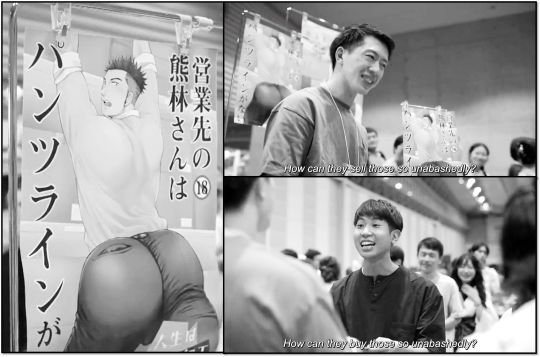
This inspires him to cultivate his talent in drawing and to pursue a career in manga. Since the art he was most drawn in by was ero-manga with macho uke with bitch characteristics, that’s the style he pursues.
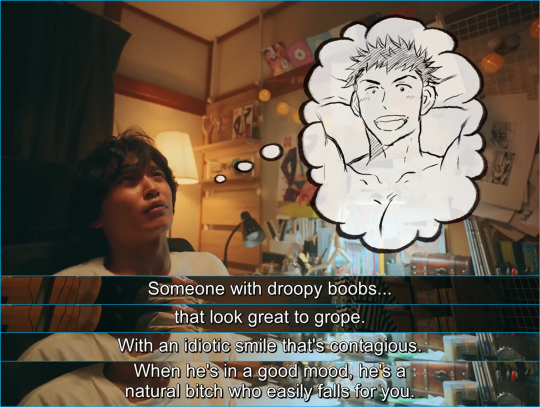
When we meet him, this is the subgenre that we see him focusing on. His influences are pretty obvious.
Moreover, the main character (hence the target of affection in his work) looks a bit like his crush. Issei notices this and tries to draw himself like that (with disproportionately thin neck) in little notes and letters to his Mamocchi.
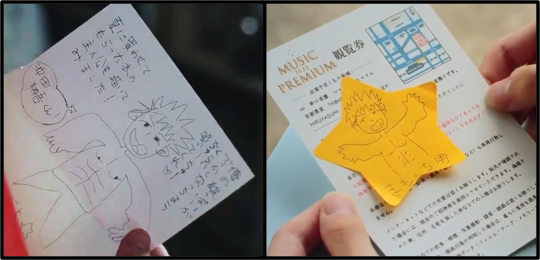
[I honestly think Nakao Masaki was bit of a miscast for this role appearance-wise because in the manga Issei is more on the gacchiri (muscular) side of ikemen. Whoever thought Torii-san’s uke from Fudanshi Bartender no Tashinami (2022) would be right fit for Issei’s character. The actor clearly didn’t disappoint in any other aspect. This is like the case with casting decision in One Room Angel (2023) wherein a manga character with gachimuchi aesthetics was changed into a lean ikemen. An opportunity for a different body-type was wasted. No complains against those actors since they aren’t the ones responsible for casting.] This is an erroneous assessment. Thank you @tompetertrash for correcting me.
Nekoyashiki, while pursuing training and education in manga making, has already established himself as a fairly successful doujinshika known as Honeniku-sensei of Muscle Department Store. He belongs to the Wall Circle.
"Kabe circle" (wall circle) — a slang term for doujin groups or "circles" that are popular enough for their booths to be placed beside the wall of the convention, for ease of line management. (Source: ANN)
He is friends with Yamada, a fujoshi who is his support in creating, defending and selling doujin.
Such friendships are not too rare. For example, friendship between Yoh and Manju in Taikan Yoho (2023). And the IRL friendship between female danmei author Lan Lin and male manhuajia Liang Azha.
Yun SuAn's friend Choi is a BL manhwaga in My Damn Business (2024).
Nekoyashiki meets two other characters at Comic King: Framboise and Takkun.
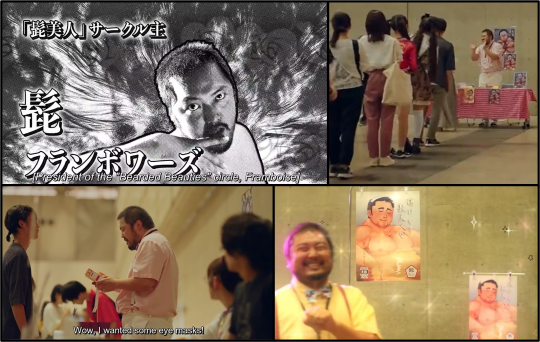
Framboise is the president of a doujin circle called Bearded Beauties. He is very popular. He is not only among the wall circles each time we see him, but also is showered with gifts by his fans. He acknowledges that he has been doujinshika for years. His art resembles him – body-type, facial hair, moe. He keeps inviting Nekoyashiki warmly to a gathering of muscle BL artists despite getting turned down. His interactions with Nekoyashiki are precious.
Takkun is Nekoyashiki’s fan. He is inspired by Nekoyashiki and worked hard to establish himself as a wall circle doujinshika.
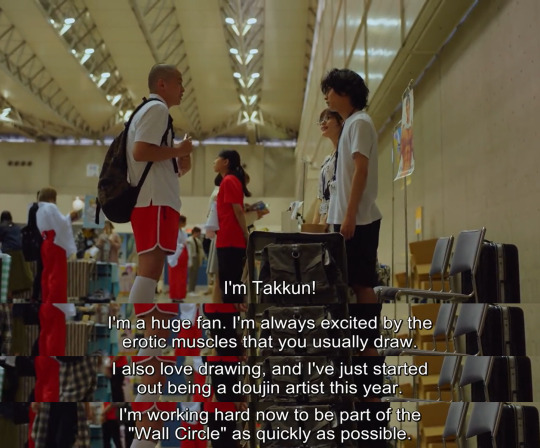
His rise from a consumer to producer of doujin and finally a wall circle doujinshika mirror's Nekoyashiki’s journey. Moreover, his rise is contrasted with Nekoyashiki’s fall.
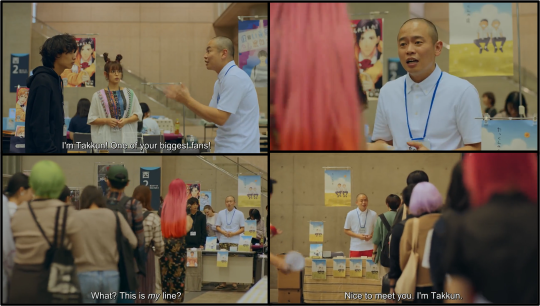
Also, one of two characters on his doujin cover looks a lot like him.
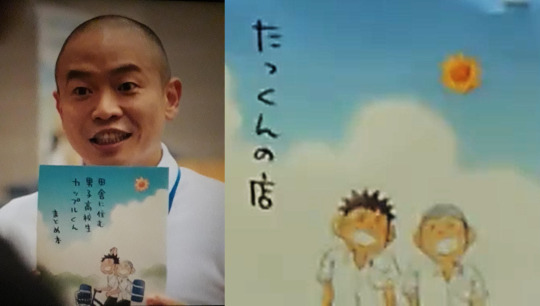
Unlike Framboise and Takkun who draw what they like, Nekoyashiki draws to be recognized.
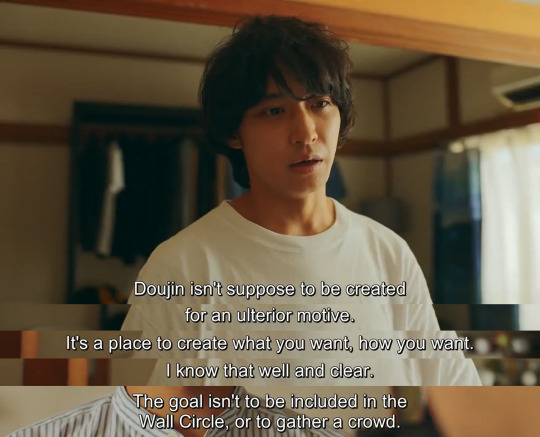
Nekoyashiki draws a second season to his previous work Please Suck on my Enormous, Manly Tits. Despite Yamada’s best hopes, it is not popular at all and loses Nekoyashiki his position as a wall circle doujinshika. He bids goodbye to Suck My Manly Tits series and to ero-manga sub-genre in general.
In a desperate attempt to climb back into popularity, he tries classic BL pairing. We get to see him reading commercial BL as a part of his research. This is an obvious mistake. Yamada wants to intervene but hesitates and ultimately gives up.
When his next doujin, My Perfect Boss Became My Perfect Spouse, also flops, he loses his resolve to be a mangaka.
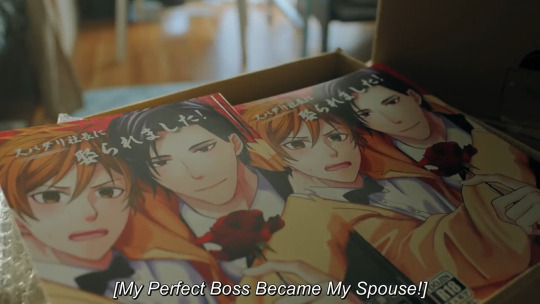
Yamada asks Nekoyashiki to be more honest and expressive in his creation.
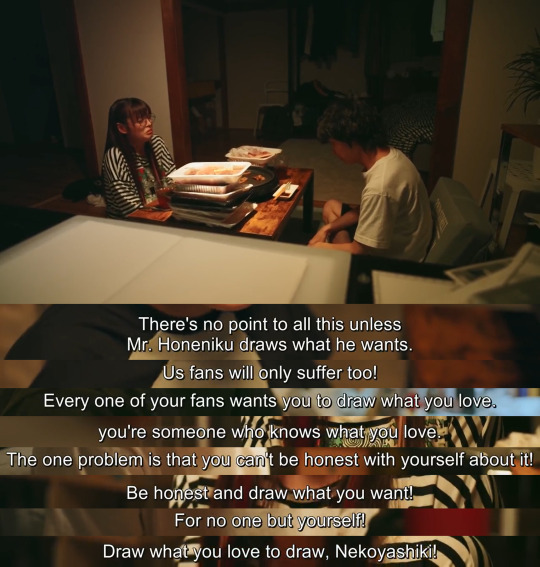
In the end, Nekoyashiki creates a doujin inspired by his own relationship and aspirations – a work that, Framboise and Yamada notices, is to Nekoyashiki’s satisfaction.
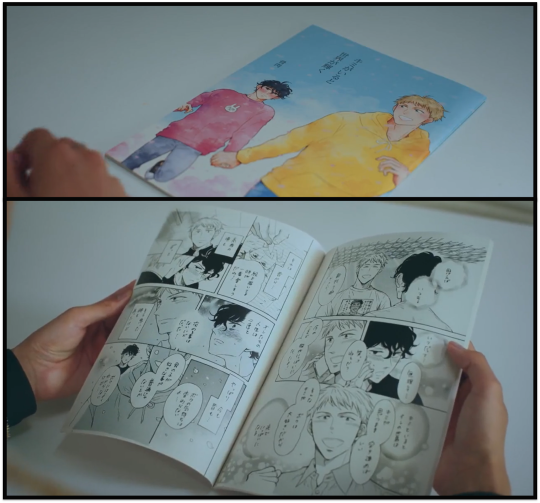
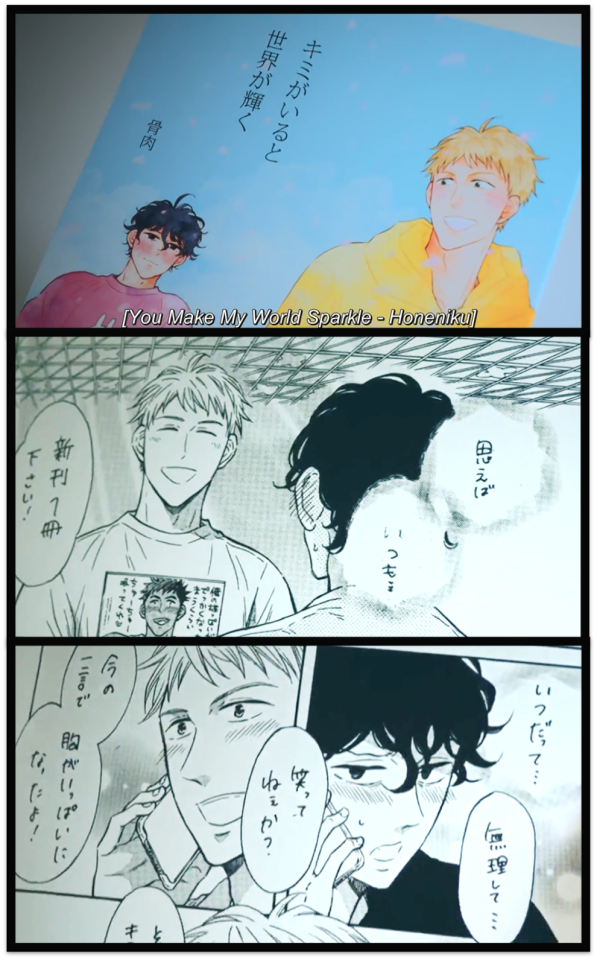
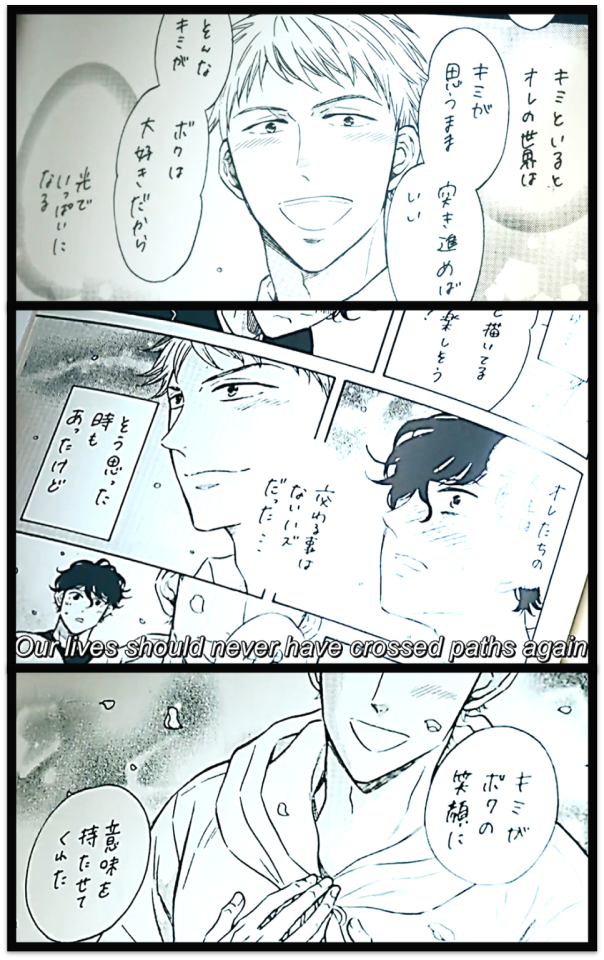
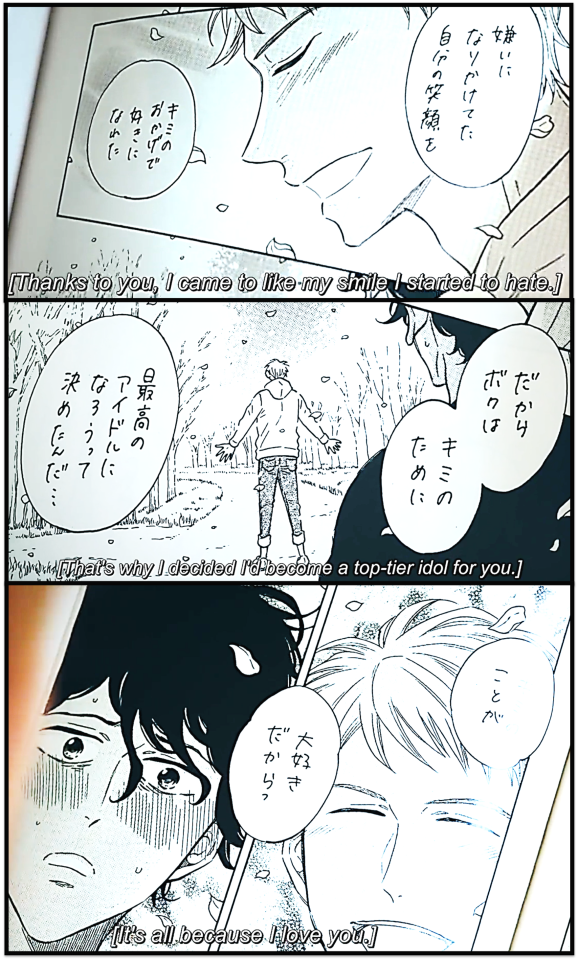
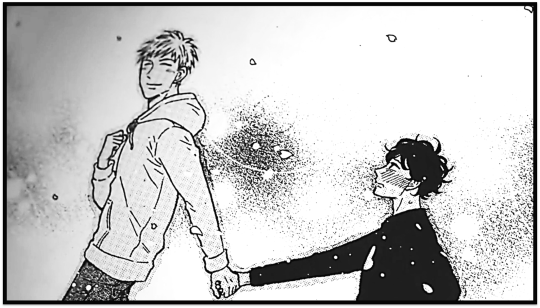
It is common for at least some characters by male BL and gei comi mangakas (who have revealed themselves) to look at least a little bit like themselves. To see examples, check out the beginning of Massive: Gay Erotic Manga and the Men Who Make It where representative art and artists are placed side by side. Some even acknowledge this. e.g. Chinese BL manhuajia Liang Azha once commented on how his shou (uke) tend to look like him as he is today and his gong (seme) resemble his looks from his college days. Moreover, art tend to inspire clothing, haircuts, and other features which in turn inspire art. The influence Tom of Finland had on androphilic men of his days and they on him is discussed in his 2017 biopic. Similarly, mangakas are influenced by their senpais in the field and sometimes it is noticeable in their art too. e.g. Gengoroh Tagame’s historical works looks quite a bit like those of Go Mishima.
Other BL doujinshika in Live-action BL
Yoh from Taikan Yoho (2023) creates his first BL doujin, inspired by his ikemen boyfriend and their relationship, in collaboration with his mangaka friend Manju after his career as commercial mangaka of straight ero-manga takes a nose-dive.
BL Metamorphosis (2022) depicted the process of BL doujin creation in detail as the main character, Sayama Urara, embarks on that journey. Her friends offer her support, especially Ichinoi Yuki who funds the printing and binding. Sayama Urara doesn’t debut as doujinshika as she doesn’t set up her booth at the convention. However, one of the copies lands in the hand of one of her favorite authors Komeda Yu whose commercial BL work Kimi no Koto dake Miteitai was what brought Sayama Urara and Ichinoi Yuki together.
Komeda Yu on the other hand is a doujinshika turned commercial BL mangaka. She visits the convention in hopes of overcoming writer’s block and to rediscover her passion for drawing. She is motivated by the doujin that Sayama Urara created and emerges out of slump to continue with her series.
Fudanshi Bartender no Tashinami (2022) revolves around Soichiro Hibiki, a fudanshi bartender moonlighting as a BL doujinshika, who draws inspiration from his customers and fellow bar staff to fuel his passion.
Minamoto Kazuki
While narrative drives home the point that the various pieces of art we see are works of respective doujinshika characters through haircuts and body types, the fact remains that most of those are actual doujin by Minamoto Kazuki aka MELU. He belongs to the circle: GOOD BYE LIFE.
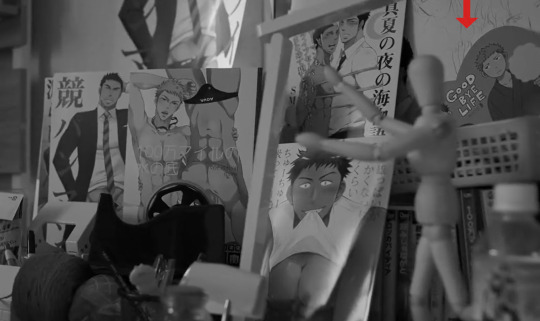
In case anyone want to read them, here are the links:
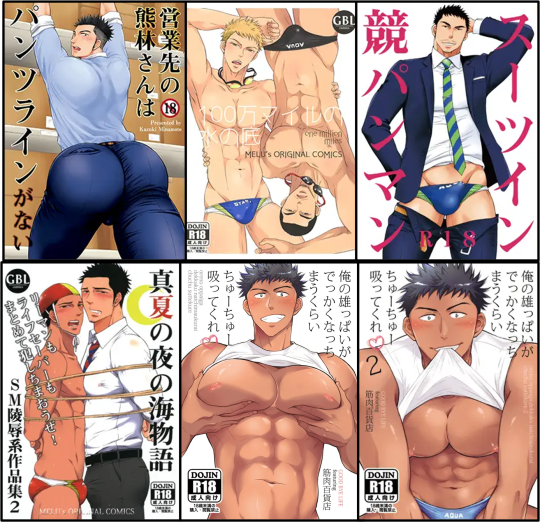
Kumabayashi at Work Has Not Underwear Line
One Million Miles: The Complete Collection
Competition Swimming Brief in Suit Man
A Midsummer Night's Beach Story: SM Assault Works 2
Suck My Manly Tits manga: 俺の雄っぱいがでっかくなっちまうくらいちゅーちゅー吸ってくれ
俺の雄っぱいがでっかくなっちまうくらいちゅーちゅー吸ってくれ2
"Suck My Manly Tits" doujin is in its 3rd season: 俺の雄っぱいがでっかくなっちまうくらいちゅーちゅー吸ってくれ3
Autobiographical pieces that didn't figure prominently:
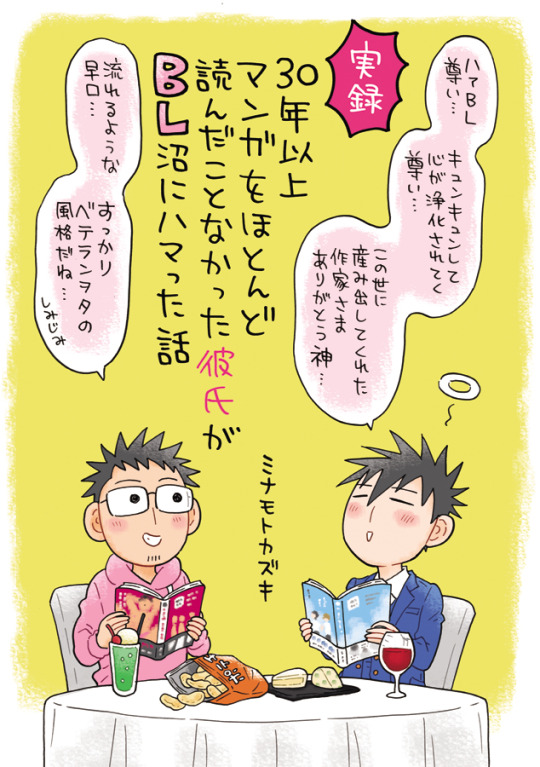
30年以上マンガをほとんど読んだことなかった彼氏がBL沼にハマった話 (A story about how my boyfriend, who has barely read manga for over 30 years, got addicted to BL swamp.)
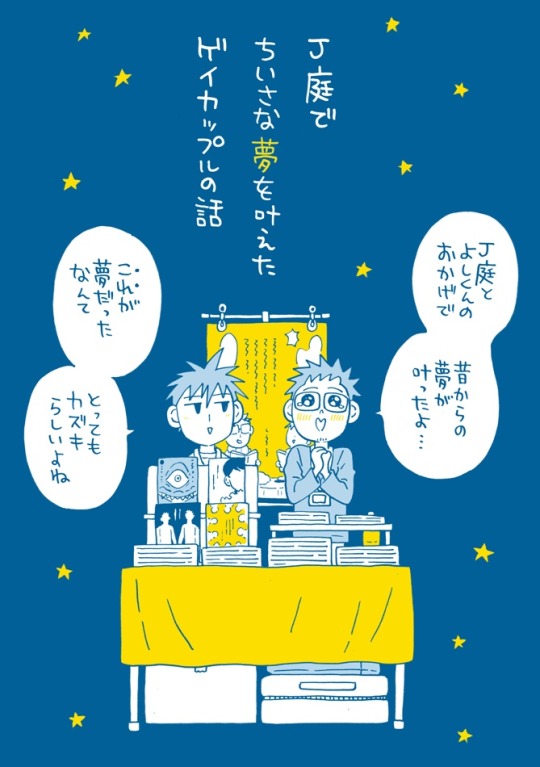
J庭でちいさな夢を叶えたゲイカップルの話 : Story of a gay mangaka and his boyfriend who participated in J.GARDEN, and their little dream that came true.
The cover of this doujin got live-action adaptation in one scene that one would miss if not looking closely:
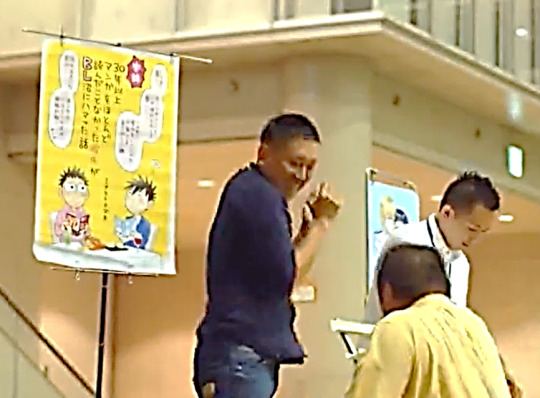
Other interesting works by Minamoto Kazuki
Autobiographical: Shōjo Mangaka no Minamoto-san ga Kaminguauto Shimasu.
2. Those with English translation:
The Midnight Association for The Broken Hearted
The salaryman who has a fetish for suit gets horny.
The Gay Who Turned Kaiju
3. Essay-manga about doujin-making
夜寝てる間にBL原稿のお手伝いをしてくれる妖精さんがいた話
BL同人原稿(アナログ18禁!!)を東京から大阪の印刷所まで届けてくれた彼氏の話
4. About Kabe Koji (2022) live-action:
自分が原作の実写ドラマの大ファンになってしまったので原作者自らヲタ活をしています。
自分が原作の実写BLドラマをリアタイしたくて大阪へ行ってきました。
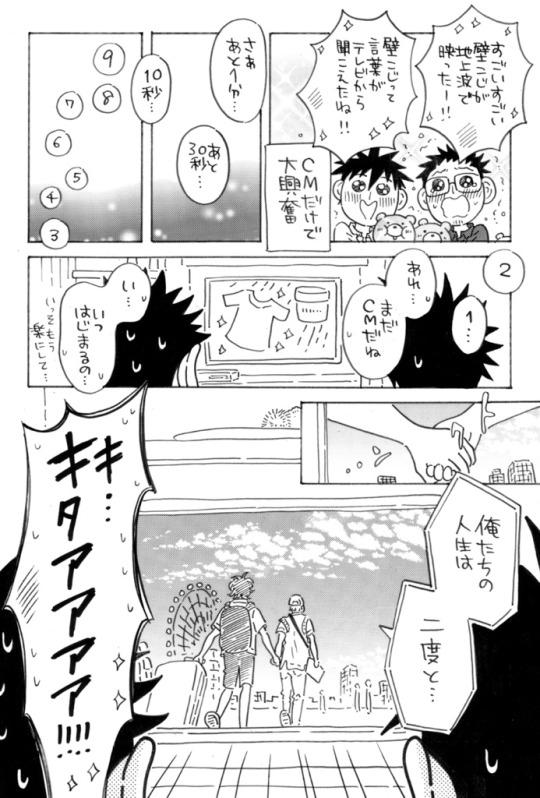
___
This is dedicated to @bengiyo and @liyazaki for gifs featuring Framboise. Thank you very much. While I was trying my hand at a review for One Room Angel (2023) and wanted to express my disappointment at the lean ikemen casting for Kouki’s role, I got an opportunity to use those gifs. I really wish someone would create some gifs for SHIMBASHI TUGBOAT content too.
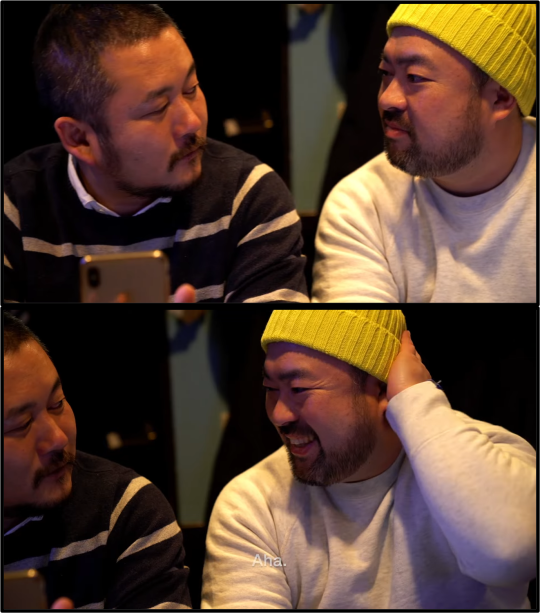
(Especially this scene.)
For someone who is as much a fan of “tribes” as BenZi, I would not mind playing the 9Monster live-action BL bingo version.
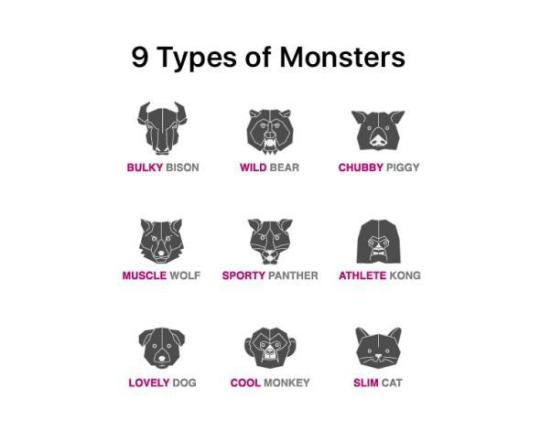
114 notes
·
View notes
Text


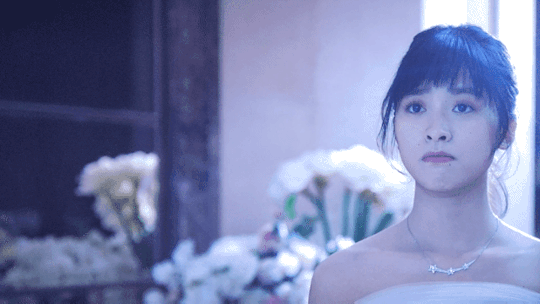

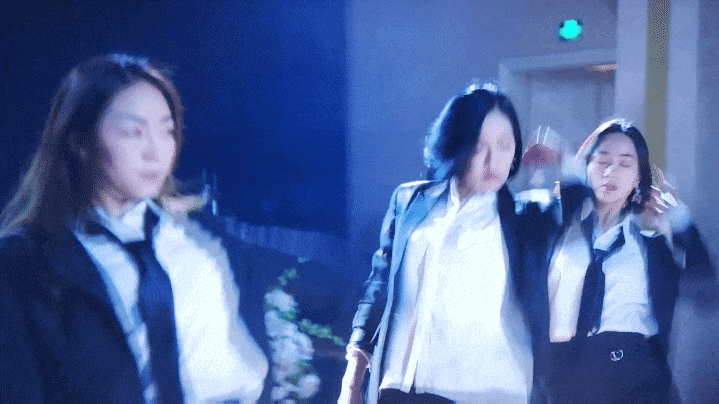


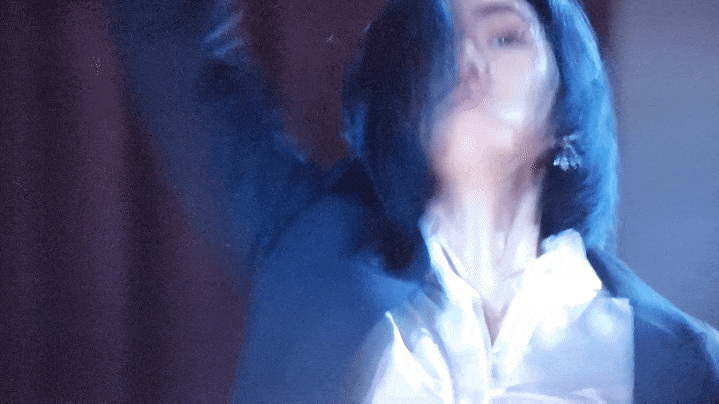
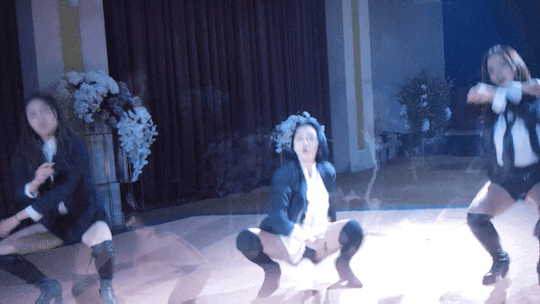
METEOR GARDEN (2018 CHINESE ADAPTATION)
So the ending was Dong Shancai (SHEN YUE) was told by Ximen (CEASAR WU) that she rejected Daoming Si (DYLAN WANG) and he moved to London.
Then Daoming Si appeared making the same demands of when they met. Shancai denied him and he left. Then Daoming Zhaung (HSU DEE) appeared with two backup dancers and danced to the song RIVER (by BISHOP BRIGGS aka SARAH MCLAUGHLIN) which is a popular song in the states at that time.
She then tried to summon Daoming Si but instead got Hauze Lei (DARREN CHEN) Ximen (CEASAR WU) and Meizuo (LEON LEONG) having to choose one of them to marry. They all make their pitch.
After she turns them all down they summon Daoming Si who appears with every other guy that fell for our heroine Shancai including her best friend Qing He (LIN YIN HAO) Thomas (BLAKE ABBIE) and Tian Ye (WANG RUN ZE)
They were married by Daoming Si's sister without Shancai's parents or Daoming Si's evil mother who by this point wasn't trying to stop them in attendance. But the two mean girls that sent Shancai into a blizzard were there. But like @pose4photoml said...they got their happy ending.
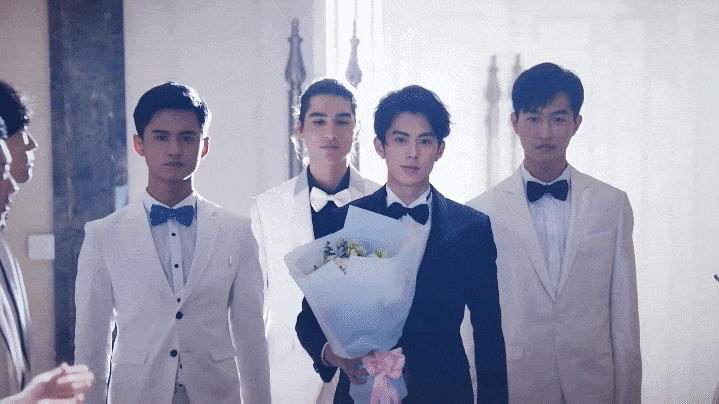
#METEOR GARDEN#2018 CHINESE ADAPTATION#SILLY ENDING BUT WE STILL LOVE IT#HANA YORI DANGO/BOYS OVER FLOWERS UNIVERSE#SHANCAI GETS HER MAN#DAOMING SI GETS HIS WOMAN#STRANGE ENDING#BUT WE LOVE SHEN YUE AND DYLAN WANG#AND BEFORE LEAVING DAOMING FENG BURNED THEM SOME BREAKFAST...HOW SWEET🫣#My GIFS#MYGIFSET#MY-GIF-EDIT#THIS IS LITERALLY MY 50TH REWATCH#WHICH ONE SHALL I REWATCH NEXT?#I'M DOING THE KOREAN ONE NEXT#IT WILL TAKE SOME TIME#I'LL GIF SOME OF THAT ONE TOO#I LOVE LEE MIN-HO#HERE I COME GU JUN-PYO#BL-BAM-BEYOND FAMILY OF BLOGS#SHANCAI IS THE LADY OF THE DAOMING MANSION AS DAOMING FENG IS OFF TO FIND HERSELF
11 notes
·
View notes
Text










MADE IN CHINA
DYLAN WANG
SHEN YUE
#MADE IN CHINA#METEOR GARDEN#CHINESE VERSION#DYLAN WANG (DAOMING SI)#SHEN YUE (DONG SHANCAI)#2018 CHINA ADAPTATION#From My NON BL WATCHLIST BLOG#My GIFS#MYGIFSET#MY-GIF-EDIT#BL-BAM-BEYOND FAMILY OF BLOGS
14 notes
·
View notes
Text

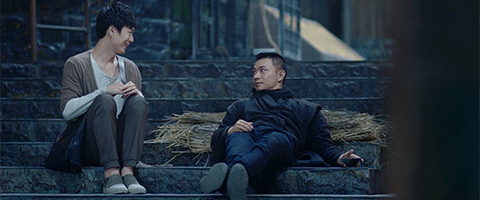

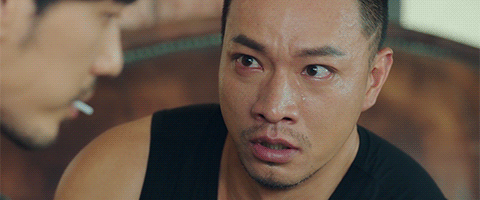

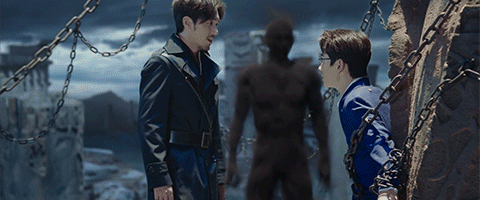
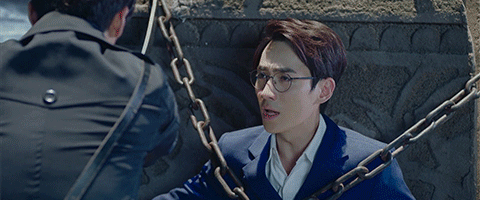
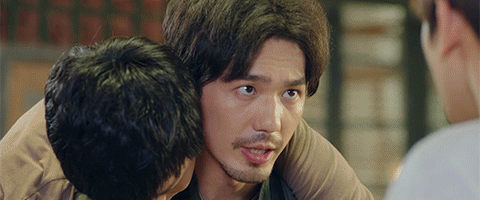
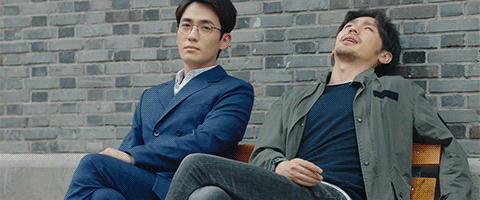
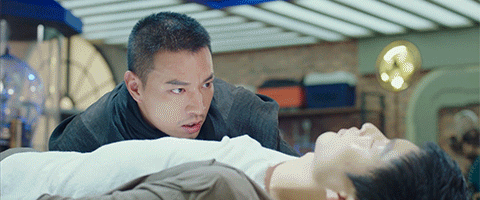
Guardian | S01E33
Chinese Drama - 2018, 40 episodes
Episodes | Viki | YouTube | iQIYI | WeTV | Tencent | Youku | Catalogue
#Drama: Guardian#Censored Adaptation of Same-sex Original Work#Censored Romance#Fantasy#镇魂#Bai Yu#Zhu Yi Long#Li Yan#Jiang Ming Yang#Xin Peng#Post: Rework#Adapted from a Novel#CDrama#Bromance#Chinese Drama - 2018#Drama: 2018
100 notes
·
View notes
Text
on why Oner wants to send Thame to Korea alone and it make scense
With all the love and respect I have for the MARS members and Thame personally for his desire to succeed together, I see and understand where Lady Pemika's words come from and from a business standpoint she has more reasonable points than Thame. As a fan of kpop, cpop and a little bit of jpop for the last 12 years, and as someone who is just starting to explore t-pop and I'm also came from western market, I can clearly see the difference in opportunities of each market individually, domestically and internationally, and the trends they follow through the years.
China (represented by the government) will never be interested in being influenced by foreign artists. The chinese market is very isolated, artists work there 24/7 to the point of breaking bones to get to the top. Monthly comparisons of Weibo subscribers, daily flights from one city to another to sponsor events to attend them all and get into Weibo trends, increase their mentions, and at the end of the year receive an award as a Weibo prince or princess, to get more acting roles, more brand contracts etc. Chinese artists are controlled not only by their agency, but also by the government. All content (dramas 100%) is pre-filmed and reviewed by the government, otherwise they do not receive a broadcast license, so some tv shows can be released 2-3 years after filming or re-shot several times. I remember several scandals where foreign fans discovered how artists were forced to release videos where they read statement with party ideology, and also we can’t forget all the negativity and artists' removing from the industry if any of the artists accidentally says something about the territorial integrity of China or called Taiwan an independent country.
After Hallyu wave ban back in 2016, China was clearly focused on developing its own independent music idol industry, which is now in a strange state, and very differently from korean industry. There are also no big permanent idol groups - all groups created on music survival shows barely release a few songs and albums before they all go solo. It's like you probably know the name of Liu Yuxin more than THE9 or Cai Xukun than Nine Percent. I believe nobody remembers now that Lin Yanjun from cdrama Crush was his co-member back in 2018. Those groups can release albums under solo, but most often it's an acting career, because it is more stable. There are unique ones like Zhang Yixing, who can manage acting, music releases and becomes a CEO of his agency with idols all at once, but such cases can be counted on the fingers of one hand. And all idols who leave for Korea still return to China, because it's their homeland and honestly China brings them more money (ex: Victoria from f(x), Kyulkyung from Pristin, WJSN chinese members, Yixing from EXO, etc).
China doesn't want to enter the international market and doesn't want to let the international market in, because they are satisfied with themselves.
Same with Japan. It's too have a closed market, where they don't allow anyone from abroad in, with rare exceptions. It's considered a huge achievement for Koreans that my queen BoA in 2002 became the first South Korean pop star to break through in Japan following the fall of barriers that had restricted the import and export of entertainment between these two countries since the end of World War II and then with TVXQ, TWICE etc. Yes, japanese people love some kpop idols and some western songs but the main industry is not adapting to western trends, nor are artists seeking international fame or leaving their home market. Let's not forget how Japan has been in the top3 biggest music markets in the world for years and there is no influence of western artists or labels.
And there is Korea which became international: back in early 00s with Asia market thanks to BoA and TVXQ, in China with EXO in 2012, and in 2012 in USA and Europe thanks to PSY and later with BTS. And it's still expanding with 4th-5th generation idol groups. The most resent SM girl group has an indonesian girl to debut and they will become big. Every year Korean music market is expanding. They are open to debuting foreign artists in their groups, because it will bring money to the agencies from foreign fans, investors and sponsors. They have managed to popularize their language, so they don't have to adapt and teach their idols English. You need to just run autosubs on the platform or wait for bilingual fans to translate everything themselves for free. Easy.
Unfortunately this industry is insanely cruel, if you look at the number of groups debuting each year (all of them, even from small agencies, not just the top 4 biggest music labels) and how many of them get at least one release a year and how many of them survive at least 2 years of entire existence, the situation becomes sad. The competition to debut is fierce, you can see how a chinese boy Chenle from NCT debuted after ~4 months of training, while his bandmate japanese Yushi trained in the same agency for almost 9 years before finally debuting (he was accepted into SM in 2015 and debuted in 2024). And they are both insanely talented singers and dancers. Similarly, you can look at my boy Jinho, who became a trainee at SM in 2008, released a few project songs but never debuted in 7 years so he left debuted as member of Pentagon after 8 years of training in some not so big agency, although Jinho is one of the most talented vocalists in the industry.
So Lady Pemika's words about Korea only wanting Thame make sense, because Thame is talented, he has everything Korea wants: the look, the personality, THE voice, and also established popularity. It is obvious that Thame has the biggest fanbase among all the MARS members, who will loyally follow him to Korea and bring money to the korean agency. And it will profit Oner too because Thame clearly will have some kind of double contract, which actually are common with chinese idols in kpop, who have two agencies at once. Only, unlike China, the Thai music industry is several steps behind the Korean one, and still very much follows it. The terminology, the model of promotion, music shows, training systems and group creation process, sound of music - all of this in the Thai idol industry is somehow borrowed from Korea and this cannot be denied. Yes, they have adapted korean industry standards to suit their culture, but still.
That's why they are so proud of Nichkhun, BamBam, Lisa and Ten who have become big in Korea and are getting global attention. Because the Thai industry is growing and developing based on the korean model and when their people are shining when they achieve success in Korea it is important for Thai companies to evolve, especially in the case of Oner, because Lady Pemika will benefit from Korean fees under the double contract. And for her as a businesswoman, this plan will come true with 100% probability, because Thame is already wanted, he has already been invited. But MARS is not.
The topic that MARS can shine together is very sensitive, because yes, these guys love each other, have a dream of achieving success together and I am as a fan will buy their album and cry for them and pray for their success. But from a business point, there are millions of artists like them, especially in Korea. As a huge fan of unpopular groups, I have a million examples in my head. We have Astro, who have been on everyone's lips their entire career because they managed to get Cha Eunwoo, there's a KNK and they went kinda viral in debut because they have Seungjun aka Seoham, who did some crazy shit in early days and then he played in Semantic Error (yes, that same Jaeyoung was once an idol). My boy Jangjun worked his ass off for years as an entartainer to make Golden Child famous in Korea, but they still met a sad end recently. And you don't even want to hear from me about Madtown guys. I bought their albums back in 2014. I watched their streams when there were no translations, let alone autosubs. They had like 2,5 fans and I was one of them.
So yeah. Thame's plan about MARS become popular together is something undefined and not an option for a company whose main priority is to make money and not to let five friends achieve their dreams. That's why Lady Pemika made all these plans leading to the fact that Thame would agree to leave MARS, because it is her main source of income from a big industry that has already expressed a desire in her assets. And also her words about T-pop becoming bigger as an industry may be based on her inner desires to become the CEO of a major agency that will lead the T-pop wave, that technically isn't even a wave yet, but just a hint of a breeze, just like Lee Sooman from SM Entertainment once led the Hallyu wave.
#thamepo heart that skips a beat#thamepo the series#thamepo#this is a very long rant. i think the first one from me on tumblr. thamepo what are you doing to me lol#my kpop ass is showing#i have a lot of other thoughts about this but i'm tired after work and my mind can't express it in english so i'm just gonna go to sleep
14 notes
·
View notes
Text
Mistranslations of Les Misérables by Su Manshu
This is a long post! To make sure you don't have to scroll so much, I'll summarise here that I will be discussing papers written by Chiang Yung-chieh (2015), Qiying Tong (2017), Ivan Yung-chieh Chiang (2018), and Li Li (2022).
If you are interested in the mistranslations of Su Manshu, please click below to read more. Thank you!
Observations by Li Li (2022)
A neat summary has been made of her research by Li Li herself:
There are SO much to go on, but this will specifically focus on mistranslations. Things such as political and religious intentions (outside of mistranslations) and the OC main character Nande will be talked about in another post some day (rip me).
1) Adaptation for an oral-storytelling purposes
"She stood trembling with her mouth open." (Wilbour, p. 47)
Becomes: “ 当时凡妈吓得浑身发抖,满嘴的牙齿碰着直响 ” (Su, p. 55)("Madame Magloire was shaking with fright, with all of her teeth chattering noisily.")
Li Li argues that these types of changes shown throughout the translation was done in order to help with the culture of orally reading a story, e.g. in a teahouse, and thus indulge in dramatisation.
Another example of the change based on the same reasoning:
"He blew out the candle with his nostril, after the manner of convicts, and fell on the bed, dressed as he was, into a sound sleep." (Wilbour, p. 52)
“ 即刻鼻子里呼声,好像打雷一般。” (Su, p. 62) ("In an instant, breath from his nose could be heard, like thunder.")
Li Li does agree that there are some questions to be raised about Su's English proficiency, of which I will talk about after this section, however since these translations lean in to more visual storytelling, she argues that Su must've changed it for dramatic's sake.
Su talks to the audience like he is physically telling the story, which strengthens the argument for this interpretation:
“Go away!" (Wilbour, p. 41).
店主���就附着此 人耳边说了三个字,就叫他浑身发抖起来。看官,你道是三个甚么字 呢?就是那 ‘快出去’ 三个字。(Su, p. 44).
("The host bent down to his ear and used three letters, which startled him. Reader, do you know what these three letters said? They said “Go away now!”.")
2) The Bishop
There are erroneous translations in which Li Li argues is due to Su trying to project his political and religious beliefs into Les Misérables, and therefore representing the character of Bishop Myriel in a negative light. Thereby, Myriel becomes hypocritical, greedy, and un-saintly.
"Every time he said this word ‘Monsieur’, with his gently solemn, and heartily hospitable voice, the man’s countenance lighted up. Monsieur to a convict is a glass of water to a man dying of thirst at sea. Ignominy thirsts for respect." (Wilbour, p. 49)
你想他把 ‘先生’ 二字称呼罪人,好象行海的时候,把一杯冷水送给要渴 死的人,不过是不花本钱的假人情罢了。(Su, p.58)
("‘Monsieur’ to a convict is like a glass of cold water to one who is dying of thirst at sea – which is no more than pretending to be kind-hearted, but at no cost.")
Ivan Yung-chieh Chiang (2018) brought up the mistranslation of Bishop wanting money (written lower in this post), and argued that this was due to the failure in understanding yes-no responses (which are inherently different in Chinese and English). However, Li Li argued that this was purposeful and had a political agenda.
She argues in her research that, Su Manshu's translation of Les Misérables is indeed activism in literary translation.
Observations by Ivan Yung-chieh Chiang (2018)
1) “ 一個 ”
The peasant’s face assumed an expression of distrust: he looked over the new-comer from head to foot, and suddenly exclaimed, with a sort of shudder: “Are you the man!” (Hugo, 1862/1931, p. 57)
那男子聽到這裏,霎時面孔上現出一種疑惑的神色,對著華賤 從頭到腳細細地打量一番,忽然大聲問道:「你是一個人嗎?」 (Hugo, 1862/1976, p. 119)
一個 is not the same as a definite article. A definite article in this scenario emphasises that the town collectively knew of Jean Valjean and had been worried about his presence. By saying 一個 , which in this case means "alone" or "one" as in "one person" then diminishes this context, and the nuance is thus lost.
2) “ 十九年前 ” and “ 你曾當過兵嗎? ”
“What are you doing there, my friend?” He replied harshly, and with anger in his tone: “You see, my good woman, I am going to sleep.” The good woman, who really merited the name, was Madame la Marquise de R__. “Upon the bench?” said she. “For nineteen years I have had a wooden mattress,” said the man; “to-night I have a stone one. “You have been a soldier?” “Yes, my good woman, a soldier.” (Hugo, 1862/1931, p. 59)
......「我的朋友呀,你為什麼在這裏呢?」 華賤就帶著怨恨的聲音答道:「我的慈善婆婆呀,我就在這裏 睡了啊!」
老婆子道:「就睡在石椅上嗎?」 華賤道:「十九年前,我還有一張木床;今天夜裏,就變成石 頭床了。」 老婆子道:「你曾當過兵嗎?」 華賤道:「不錯,我曾當過兵。」 (Hugo, 1862/1976, p. 122)
「十九年前」 is different from saying "For nineteen years", as the latter is a continuous state which extends to the present or near-present (e.g. "For nineteen years I have done this" can mean "Up until now I have done this" or "I am currently doing this" among other similar phrases). Meanwhile 「十九年前」 is strictly about the past, becoming "19 years ago". This then sounds like disconnected problem Jean Valjean brings up. He's essentially saying "19 years ago I once slept on a wooden bed, but now I sleep on a stone one."
「你曾當過兵嗎?」 "Were you once a soldier before?" Given that there was the change in meaning made in the first point, this second point of the woman asking Jean Valjean if he had been a soldier before, seems like an illogical question to spring into the conversation. Like "Oh, you slept on a wooden bed 19 years ago? What were you, a soldier?".
3) “ 我現在很餓 ” and “ 當我進門的時候,見了師父這樣仁 慈 ”
“Stop, stop, Monsieur Curé,” exclaimed the man. “I was famished when I came in, but you are so kind that now I don’t know what I am; that is all gone." (Hugo, 1862/1931, pp. 65-66)
華賤道:「我現在很餓,又渴。當我進門的時候,見了師父這樣 仁慈,也就令我忘記了。」 (Hugo, 1862/1976, p. 122)
The split in the sentence is done at the wrong place. It is due to the misunderstanding of "When I came in", and what that makes of the tenses around it, thereby categorising parts of the sentence structure incorrectly.
Therefore, it becomes erroneously translated into "I am famished. When I came in, I found that you were so kind. 「當我進門的時候,見了師父這樣仁 慈」
4) Jean Valjean's money
And along with that there were many bitter experiences. . . . However that might be, his savings had been reduced, by various local charges, to the sum of a hundred and nine francs and fifteen sous, which was counted out to him on his departure.
He understood nothing of this, and thought himself wronged; or to speak plainly, robbed. (Hugo, 1862/1931, p. 82)
不料隨後還有許多危難。當其在監中做工所得工價,除去用 度,還應存百零九個銀角子和九個銅角子。不料時運不濟,盡 被強人搶劫去了,一些兒也不曾留下。(Hugo, 1862/1976, p. 178)
'Robbing' becomes a physical action, and thus is translated as 「盡被人搶劫去了,一些兒也不曾留下」 (“[He] was robbed of all his money, with nothing left”).
Before this passage, Su Manshu does translate that Jean Valjean does indeed have money: 「我身上還帶了一百零九個銀角子和十五個銅角子」 (“I have money . . . one hundred and nine francs and fifteen sous.”), so this adds onto the inconsistencies.
5) “ 不然”
“You are humane, Monsieur Curé; you don’t despise me. A good priest is a good thing. Then you don’t want me to pay you?” “No,” said the bishop, “keep your money. How much have you? You said a hundred and nine francs, I think.” (Hugo, 1862/1931, pp. 64-65)
華賤說道:「師父既然是一個慈善的人,就不用算我的飯錢 了。」 .... 孟主教果然忙答道:「不然,不然,一定要算飯錢的。你共有多少錢呢?你曾說你有一百零九個銀角子。」 (Hugo, 1862/1976, p. 126)
The translation makes it so that Bishop Myriel does indeed wish to be paid. This is due to the yes/no response difference in Chinese and English.
Essentially, a 'no' response in this setup in English would mean "No I don't want to be paid." However in Chinese, it would mean "No, you should pay."
6) “ 睡得稍遲 ” and “ 不住地寫字 ”
That evening, after his walk in the town, the Bishop of D__ remained quite late in his room. He was busy with his great work on Duty. . . . At eight o’clock he was still at work, writing with some inconvenience on little slips of paper, with a large book open on his knees. . . . (Hugo, 1862/1931, p. 60)
卻說太尼城有一位孟主教,一日晚上,到太尼城四處閒遊。後 又因公事忙碌,所以睡得稍遲,到了八點鐘的時 候,他還擱著一本大書在腿上,手裏拿著一塊小紙,正在不住地寫字。 (Hugo, 1862/1976, p. 122)
"Remained quite late in his room" is then translated into “ 睡得稍遲 ” (“get up late” or “go to bed late”).
"Writing with some inconvenience" is erroneously translated into “ 不住地寫字 ” (writing non-stop).
7) Left and Right and possessives
The bishop’s countenance was lighted up with this expression of pleasure. . . . He seated the man at his right. Mademoiselle Baptistine, perfectly quiet and natural, took her place at his left. (Hugo, 1862/1931, p. 66)
孟主教滿面堆著笑容,請華賤坐在自己左邊,寶姑娘又坐在華賤 的左邊。(Hugo, 1862/1976, p. 127)
Jean Valjean is seated at the left, and Baptistine is then seated left of Jean Valjean. This error is most likely due to Su getting mistaking which character the possessive "his" was referring to.
8) Rye bread
Meantime Madame Magloire had served up supper; it consisted of soup made of water, oil, bread, and salt, a little pork, a scrap of mutton, a few figs, a green cheese, and a large loaf of rye bread. She had, without asking, added to the usual dinner of the bishop a bottle of fine old Mauves wine. (Hugo, 1862/1931, p. 66)
話說凡媽拿飯進來,華賤看時,有湯,有水,有鹽,有油,有豬 肉,又有羊肉,又有無花果,又有一大塊烘乾的麵包,又有一大瓶紅酒,樣樣都用銀器盛來,光彩閃閃,映在 鋪桌子的白布上面,真覺異樣好看。(Hugo, 1862/1976, p. 127)
Rye bread is confused with 'dry bread', thereby giving this translation: “ 一大塊烘 乾的麵包 ” (“a large loaf of dried bread”).
From these examples, we can see that Su Manshu struggled with: tenses, sentence structures, yes-no responses, and possessive pronouns.
All in all, Su Manshu, given that he was nineteen when he translated the work, couples with the rarity of English language education in China, he still did a remarkable job, and this data isn't collected to negate that claim.
Ivan Yung-chieh Chiang's (2018) argument was that Su's proficiency in English is greatly overstated in many of the Chinese literacy spaces.
Observations by Qiying Tong (2017)
To fit his translating choices, Su would often add new context into the narrative. For example, the Bishop saying “No, keep your money.” in response to Jean Valjean asking if he should pay for accommodation, becomes:
[There is nowhere on earth can we find a truly selfless and righteous man. The Bishop said, ‘of course, you have to pay for the meal and room.’ ] (translated by Qiying Tong)
As stated throughout this post, agreed by all the researchers, this is just a thing Su Manshu does in the translation; adding bits that didn't exist to give context to his translation choices, but also at the same time omitting information of intricate descriptions and simplifying them.
It's this kind of add-ons and deletions which make this translation truly a thing that exists.
Additionally, Qiying Tong nealty puts into a table of sinification Su Manshu puts into Les Misérables:
Figure 1 & Figure 2


Figure 1: [Names and places that were traceable in the source language] (Tong, 2017, p. 15) Figure 2: [Names and places that were invented in the new storyline] (Tong, 2017, p. 15)
Since I don't want to use this post to go into a dive about the then-political climate of China, and the reasoning behind some of the name changes, I will move on. If I have the time, I will revisit this table.
This paper dives into the political reasoning behind translations, as well religious viewpoints that ultimately shaped the 1903 "Les Misérables". This paper needs a separate post dedicated to itself ㅠㅠ
Observations by Chiang Yung-chieh (2015)
Chiang Yung-chieh (2015) agrees with Li Li's conclusions that it is biased, and the mistranslations go deeper than just a language proficiency problem.
Both agree that Su was using this translation in order to make a political statement, both using the presentation of Bishop Myriel as one of their evidence.
His research argued about which translation Su Manshu must've based his translation off of (because it definitely wasn't the original French). Because of that, there isn't much information I can give in relation to this topic more than his agreement with Li Li about the purposes behind the translation choices.
In conclusion, translation errors are undeniable. We know that Su's English skills definitely lacked; however some things cannot just be left to coincidences, and Li Li makes a strong argument about the possibility of religious and political motives coming into play which would've also played a large role in how Su translated.
The 1903 translation itself was a political statement, published in a newspaper trying to encourage a revolution. Li Li is the only researcher in this list who is adamant that Su based his translation purely on Wilbour, while others argue or shrug about the actual source.
It doesn't particularly matter though in the sense of seeing this as an adaptation that was written, since there are never-seen-before like Nande, who has his own adventures and main character spotlight.
This all points to it being political activism, along with some complaints about Christianity and some Western influences (although this seems to be debated). And this debate still exists because researchers are scratching their hands trying to find out to which extent Su intended something to be a commentary, and at what point was things just written due to a linguistic misunderstanding.
References:
Chiang, I. Y.-c. (2018) ‘Su Manshu’s English Proficiency Reexamined’, Compilation and Translation Review, 11(2), pp. 129–162.
Chiang, Y.-c. (2015) ‘In Search of the Source Version of Su Manshu’s Can Shehui: An Intertextual Study’, 東亞觀念史集刊, 8, pp. 187–266.
Li, L. (2022) ‘Su Manshu’s Adaptation of Les Misérables: The Manipulation of a Bridging Text in an Activist Translation’, Translation and Literature, 31(2), pp. 35–51.
Tong, Q. (2017) Skopos and ideology in the rewriting of Su Manshu and Chen Duxiu's Chinese translation of Les Misérables. Master's thesis. Nanyang Technological University, Singapore.
#I don't want to look at another paper again lmao#I don't even think I locked in#les mis#su manshu#1903 Su Manshu's translation#translations#China#chinese#traditional chinese
8 notes
·
View notes
Text
A list of animal species that are likely to survive in a heavily urbanized and polluted Earth, from Successors of Mankind: The world after the sixth extinction (Pavel Volkov, 2018)
Mainly “weed” species have survived: fast-growing, early and intensively breeding, living not for long, easily adapting and unpretentious ones... One of the largest species on the Earth after the civilization epoch is human itself. The second-largest species is a goat. In some places of the Earth pigs also have survived... [as well as] rodents, bats, insectivores, hares and rabbits... In Asia macaques, and in Africa baboons have survived. In Americas from among local New World monkeys capuchins have survived. Among prosimians only African bushbabies still exist. From among carnivorans mustelids, smaller cats, dogs and raccoons were lucky to survive. In tropics mongooses also exist. Among birds the period of global ecological crisis was successfully gone through by dominant species of corvids... gulls, rock pigeons and various songbirds. Some widespread species of ducks, few species of herons, sandpipers and rails have escaped the extinction. At coasts of oceans of Northern hemisphere not numerous species of alcid birds, and in Southern hemisphere penguins persist. Among reptiles, adders, rattlesnakes, rather numerous colubrids, some widespread species of geckoes, lacertid lizards and monitor lizards (in Old World) and teiids (in New World) have survived. Sea turtles have died out completely, but in tropical rivers freshwater turtles, and in deserted areas tortoises still exist. Because of intensive hunting crocodiles have almost completely died out – only very degenerated caimans in tropics of America have remained. Among amphibians tropical forest species have almost completely disappeared. There are only widespread unspecialized species from temperate latitudes, and in tropics only species from drier habitats. Among freshwater fishes in epoch of biological crisis kinds which in human epoch could be named as “rough” ones dominate: these are small cyprinids, perches and ruffes, Chinese sleepers. It is possible to find worldwide in the appropriate climatic conditions feral populations of carps and tilapias. Among predatory fishes of temperate latitudes pikes have successfully survived. In tropics worldwide snakeheads (both native and introduced), and also live-bearing mosquitofish and [guppies?] prosper... The majority of survived sea fishes is represented by coastal inhabitants. Pelagic fishes have become extinct because of overfishing and the collapse of feed supplies. Pollution of ocean has caused disappearance of numerous planktonic invertebrates, and also of fishes, whose juvenile stages of development passed in plankton... [and] of abyssal fishes depending completely on organic matter sinking from the surface... Reef-building corals with firm skeleton have disappeared... smaller species of crustaceans prosper now: extinction of whales, sea birds and pelagic schooling fishes has resulted in fast restoration of their number. And an ecological role of fishes of open ocean had been taken by cephalopods... in oceans numerous squid schools swim. But there is nobody to catch them now – sperm whales, dolphins and large predatory fishes had become extinct. A diversity of insects and spiders at the genus and species level had been badly affected... But at the family level there were actually no losses... Many of them have been acclimatized in new places and have not died out even in epoch of biological crisis.
Following, on survival of domesticated species after the collapse of human civilization:
One of secrets of success of survived species was to keep closer to humans and to landscapes changed by people, but to depend on humans as little as possible... the most part of domesticated animals had died out in parallel with collapse of human civilization. The specialized breeds adapted to animal industry were gone for one generation. Decorative breeds have disappeared just as quickly. Only few primitive breeds of sheeps and goats, and also semi-feral rural chickens from tropical areas of the Earth have managed to survive. Cats managed to survive even easier: they have simply settled back to the wild... In the same way... many cultivated plants have quickly died out; descendants of only few of them, least changed by agriculture, have survived... they were in full dependence on humans and have simply died out without them. In due course of development of human civilization around of human buildings and in cultural landscapes there was a certain complex of animal and plant species which did not become domestic, but were capable to exist in the environment changed by people – these are so-called synanthropes... Those kinds, that were too dependent on humans, have died out very soon. Most well known of them are cockroaches. When there were no heated rooms, their area was reduced up to climatic zones with mild winter. Rats and mice have gone through only brief period of triumph, feasting on the rests of human provisions... in searches of prey owls, cats and small mustelid predators came to abandoned and collapsing cities. They have literally specified to rodents their place in ecosystem: they have turned to prey again, and their triumph was over as soon, as it started.
#speculative biology#speculative evolution#future evolution#I'd love to see a proper academic treatment of this topic someday#perhaps I'll have to do it myself
8 notes
·
View notes